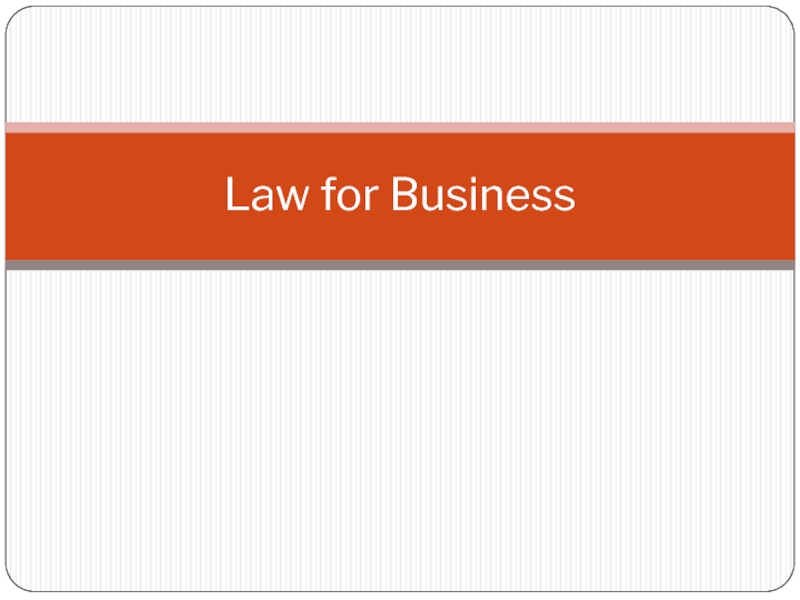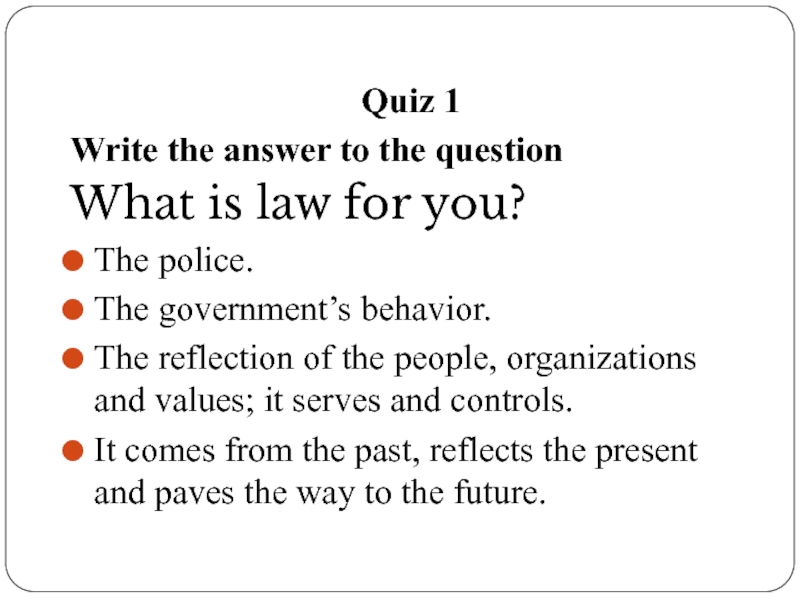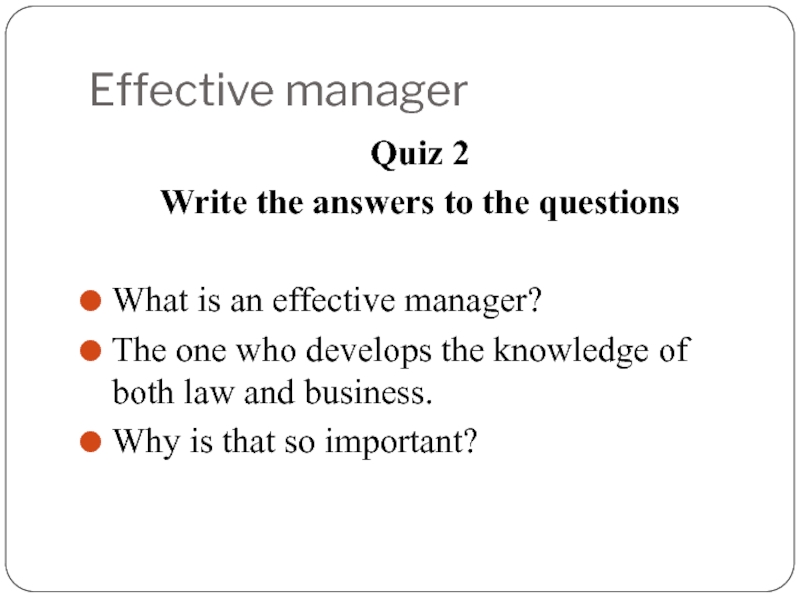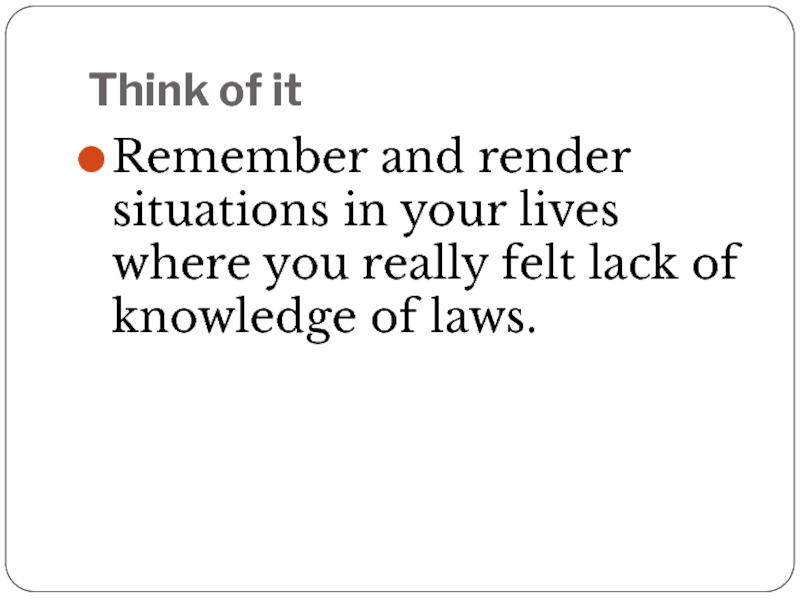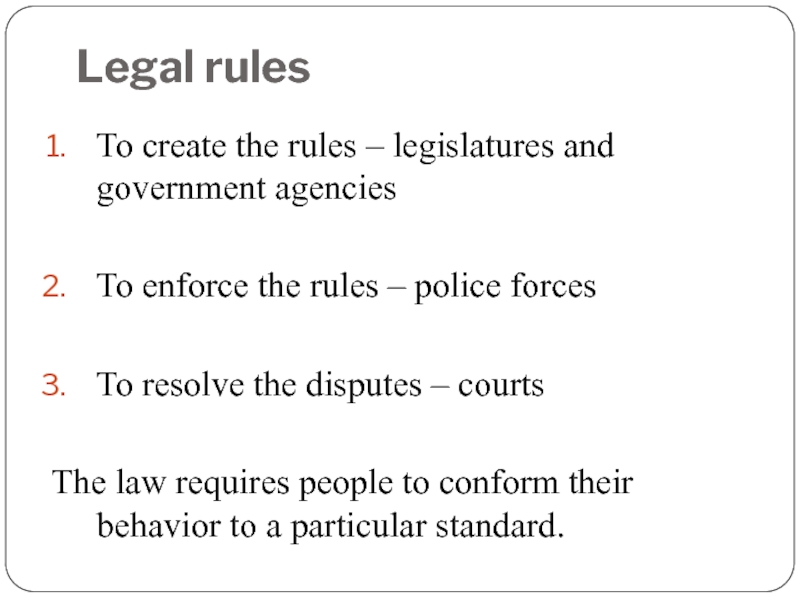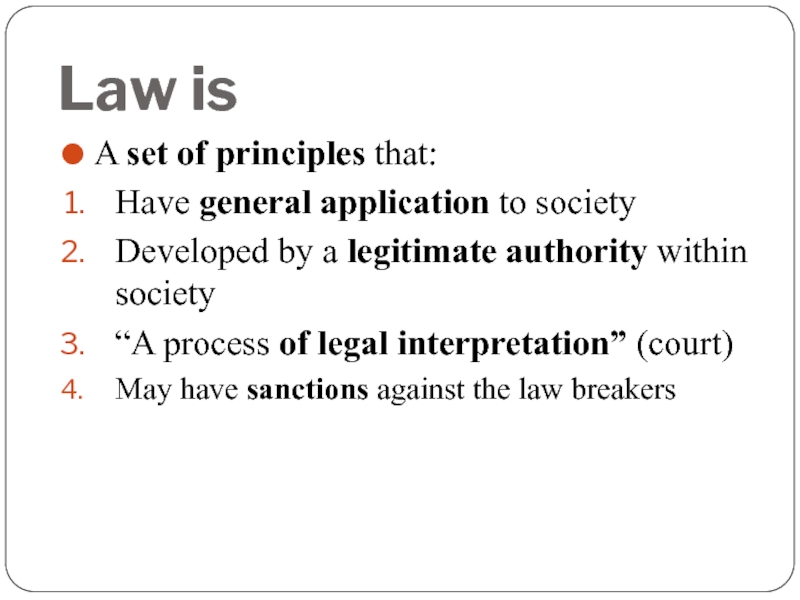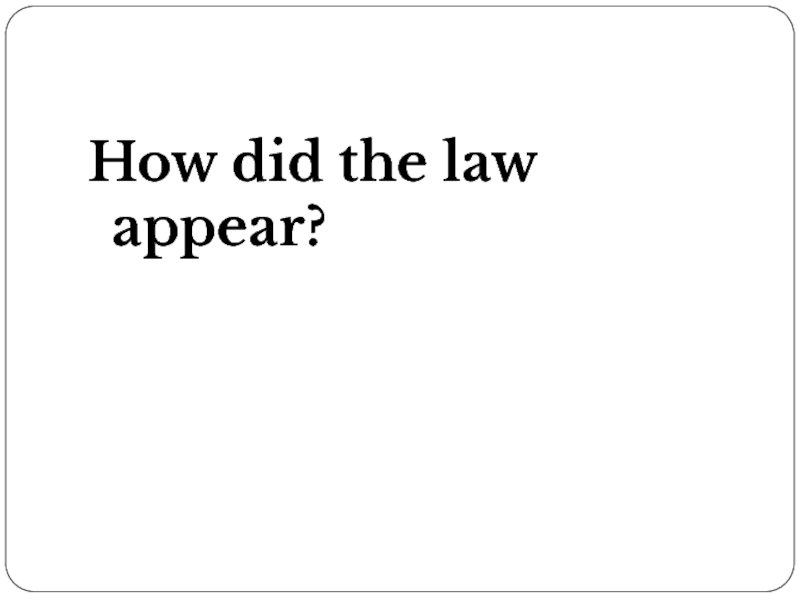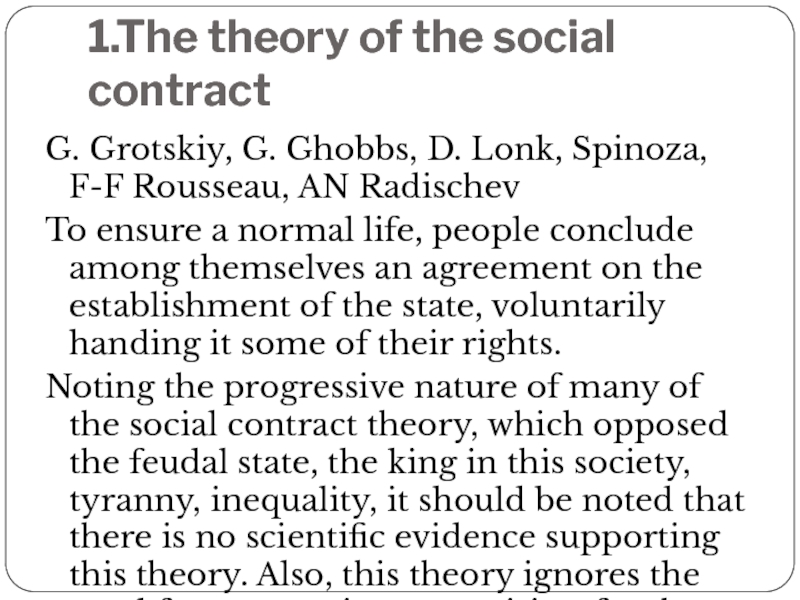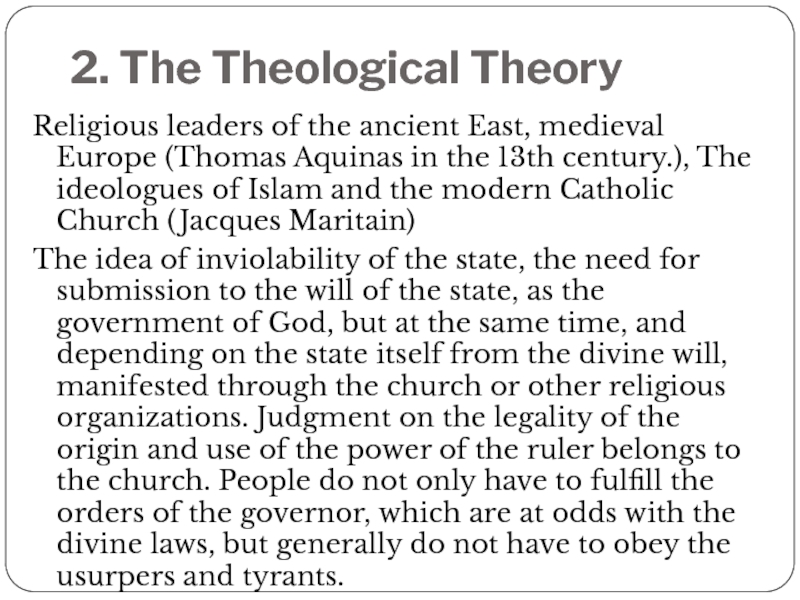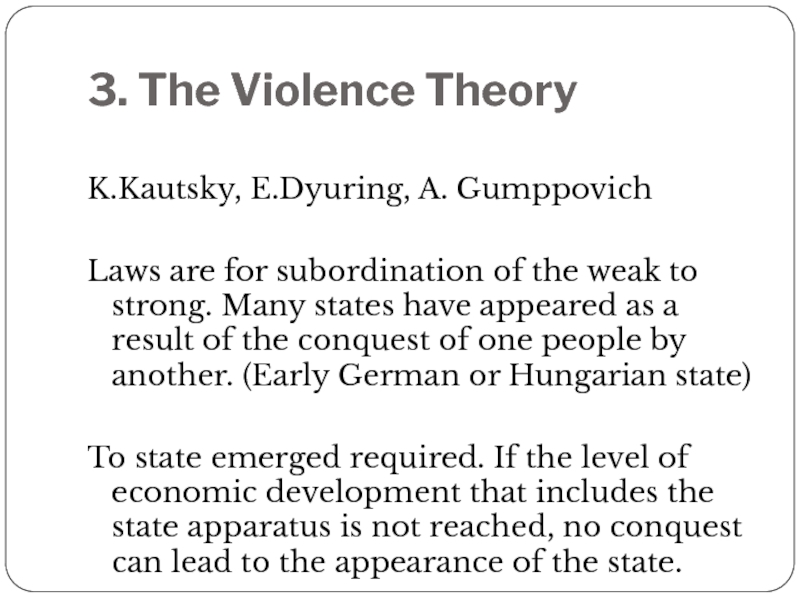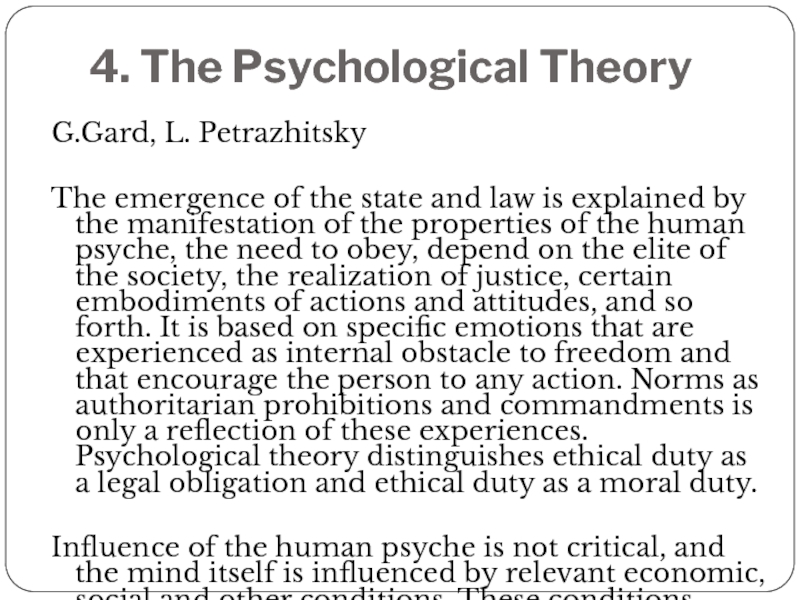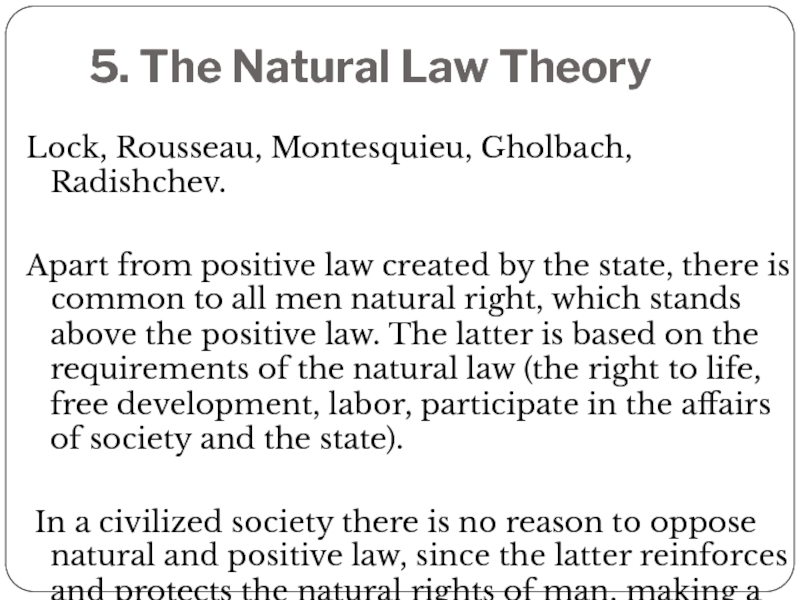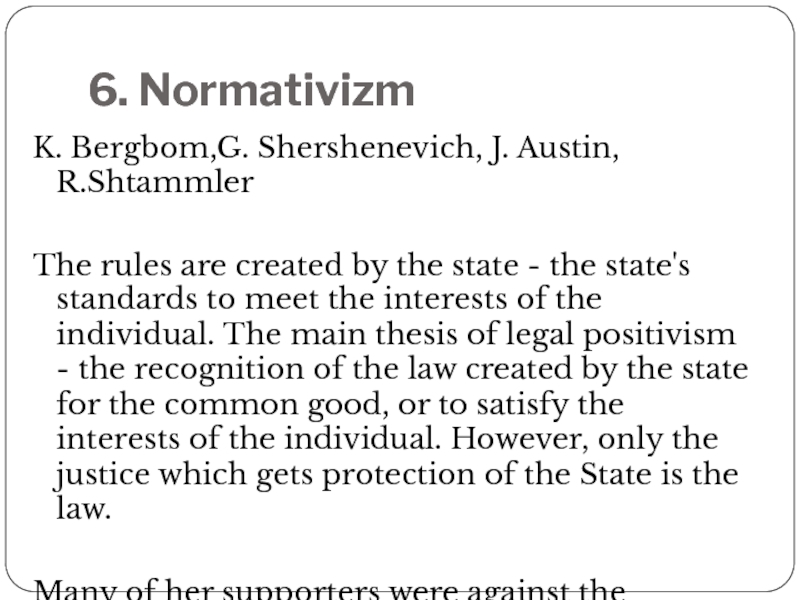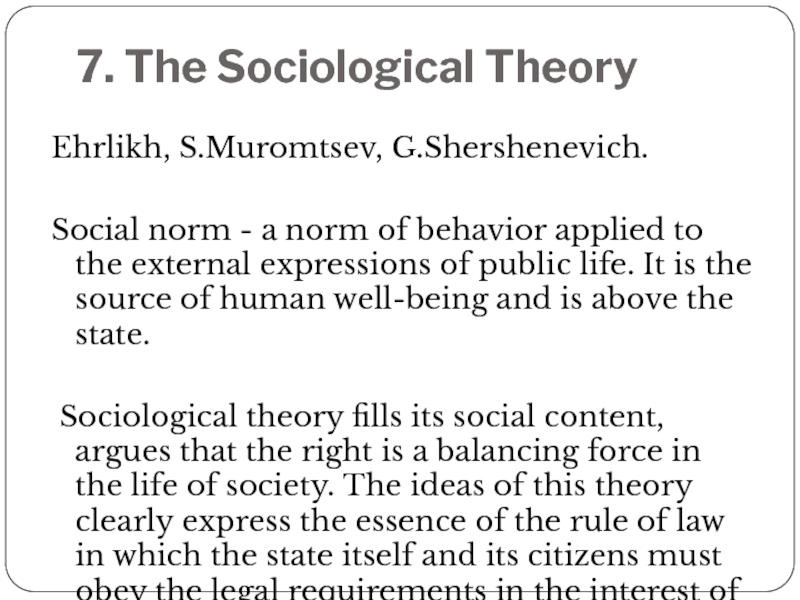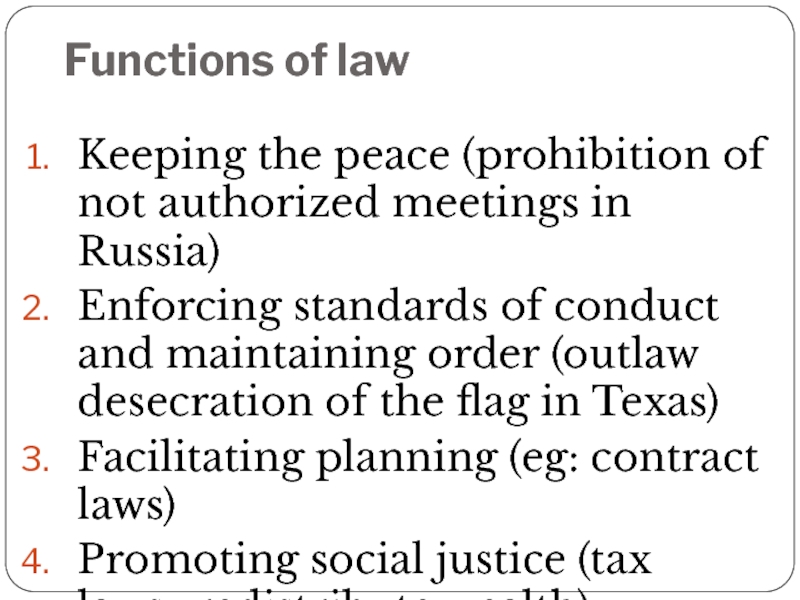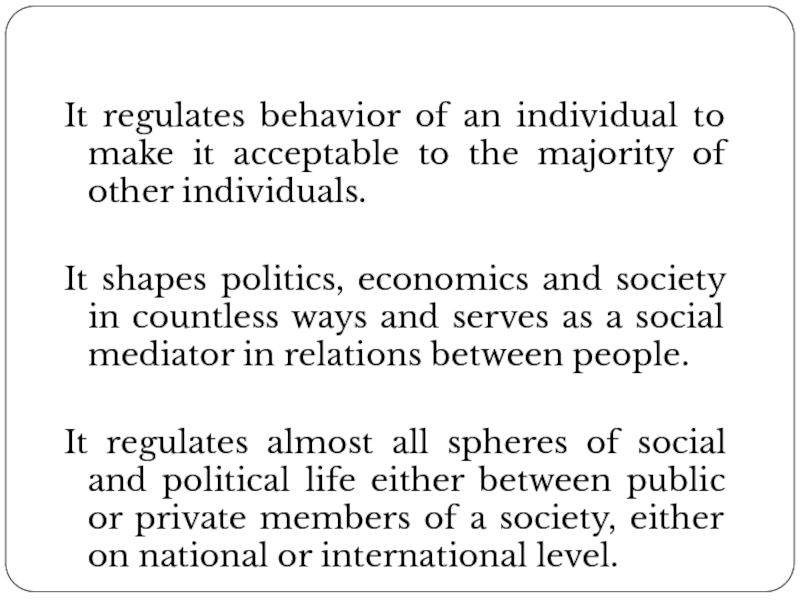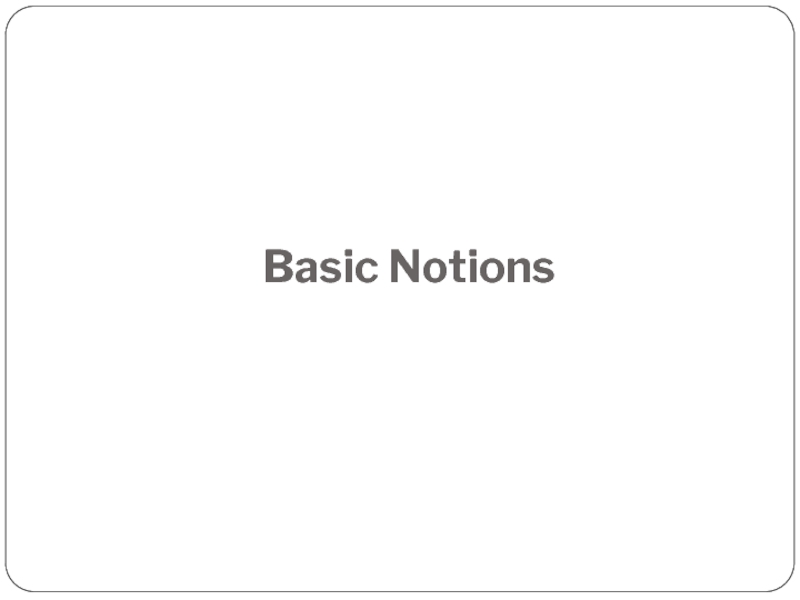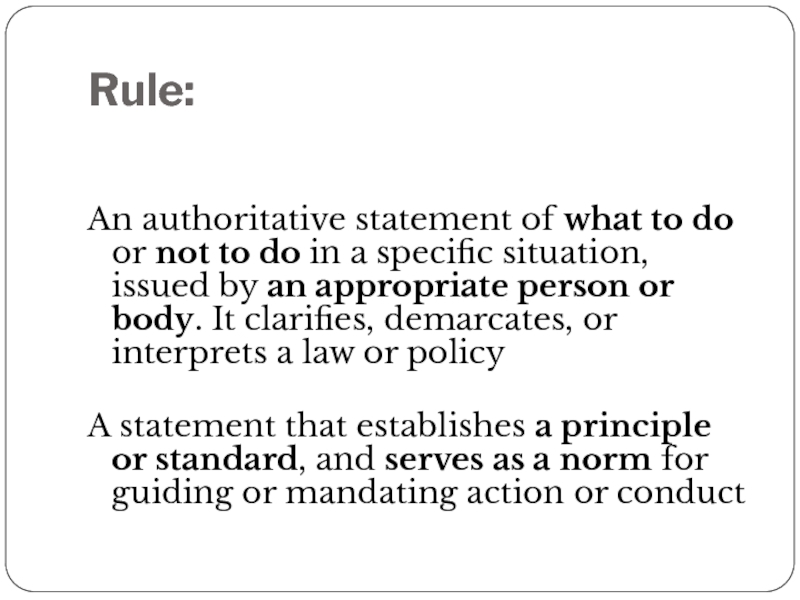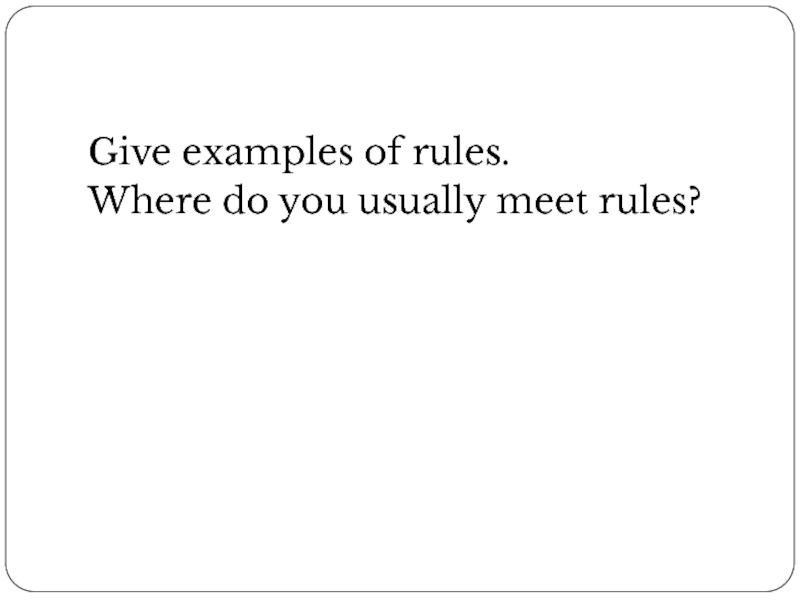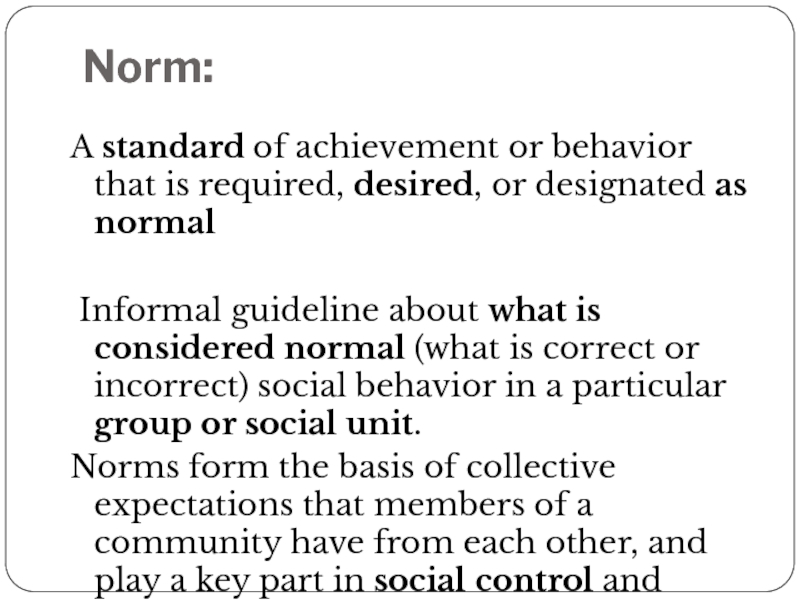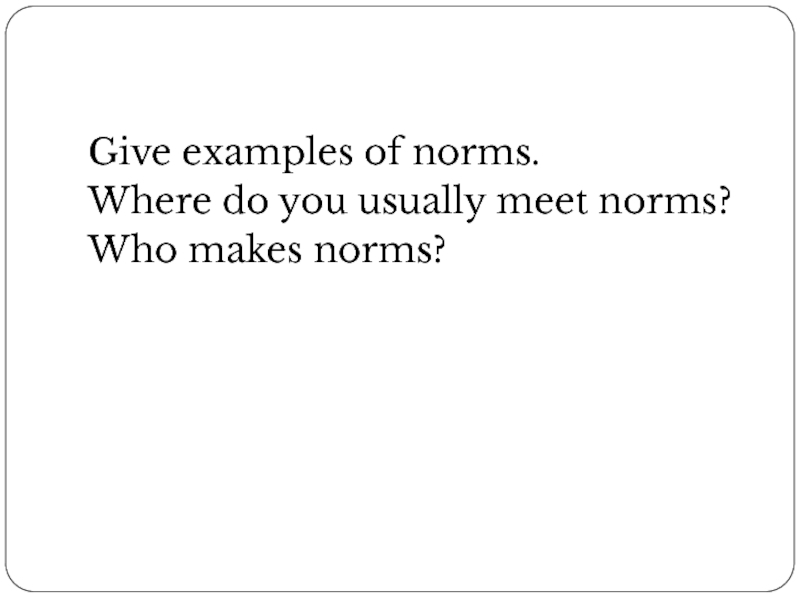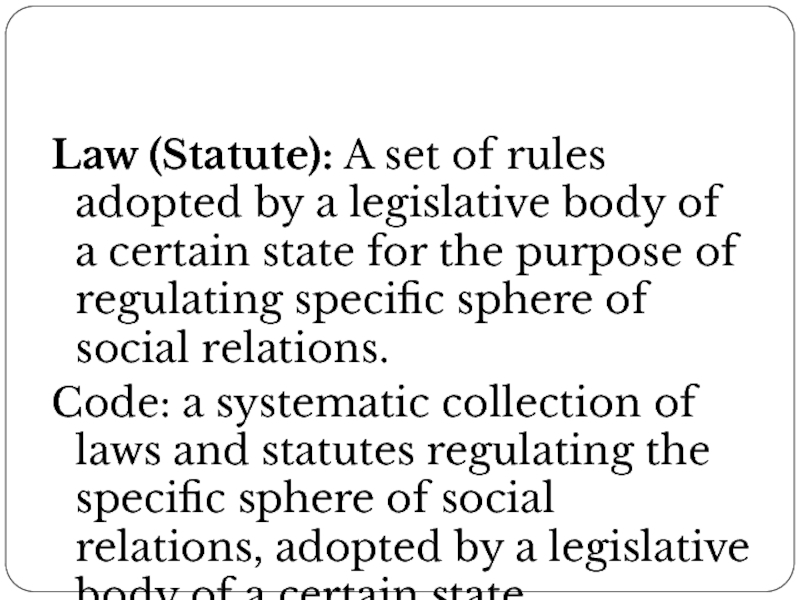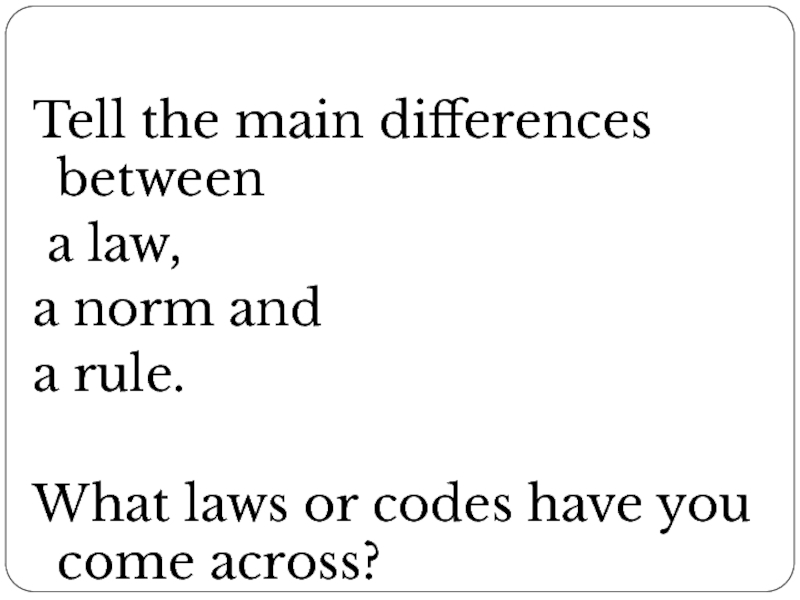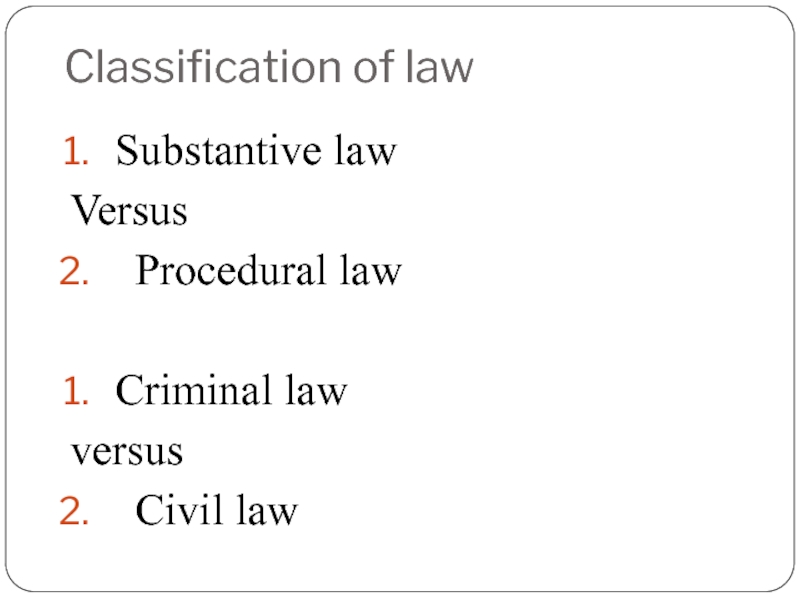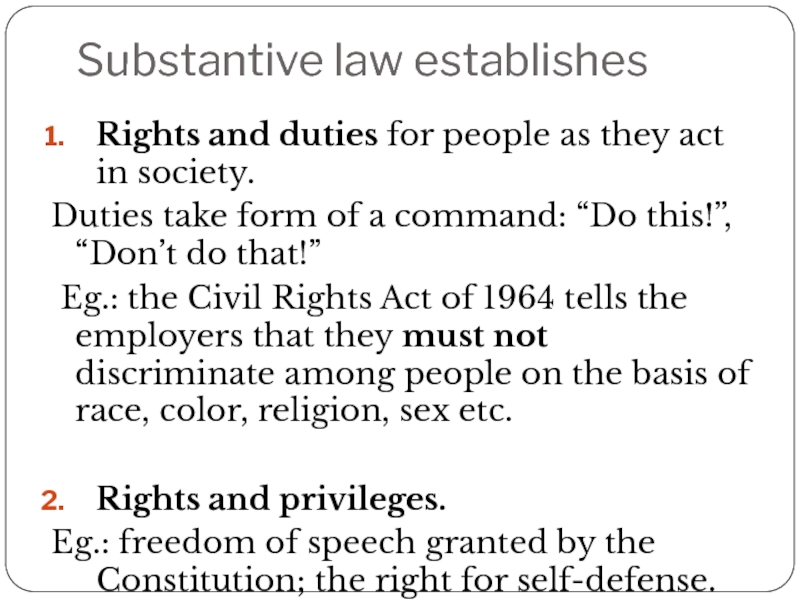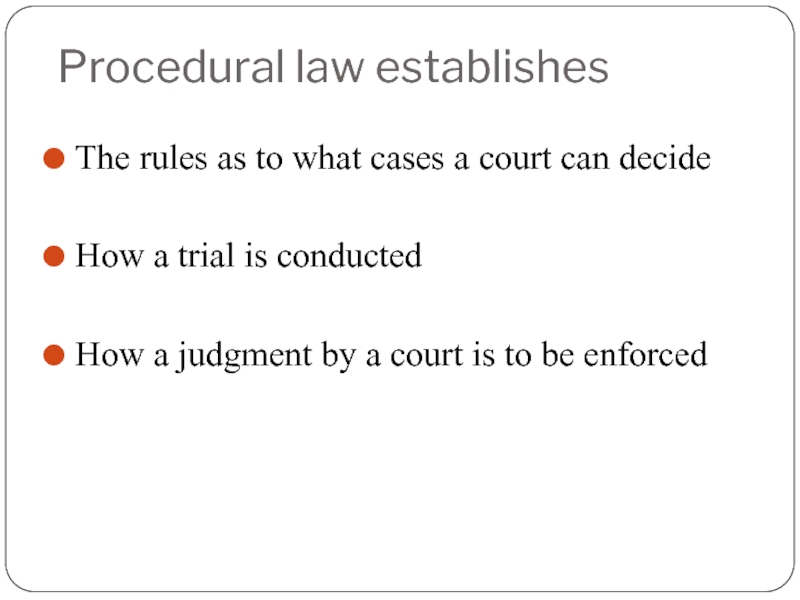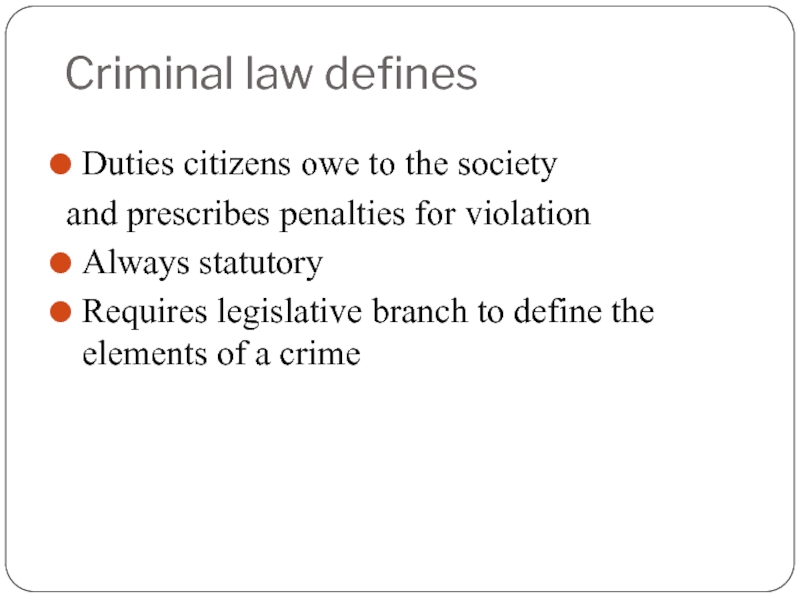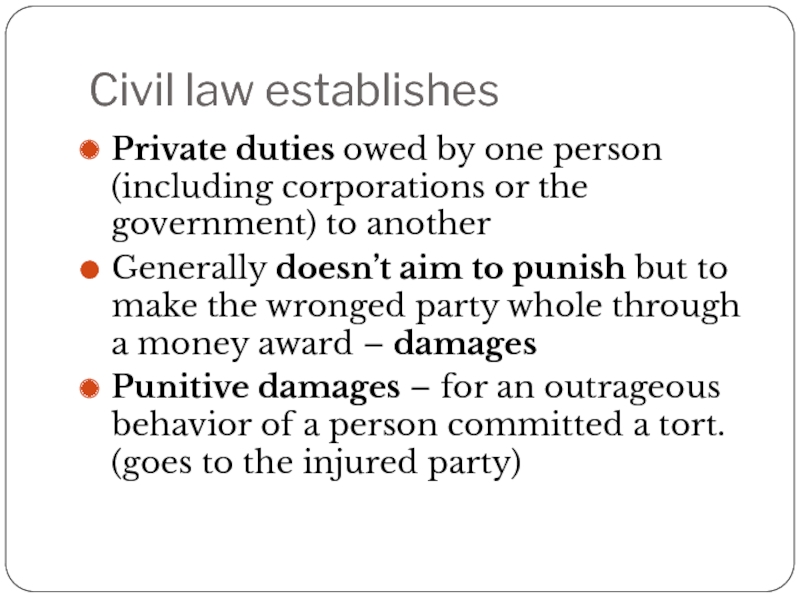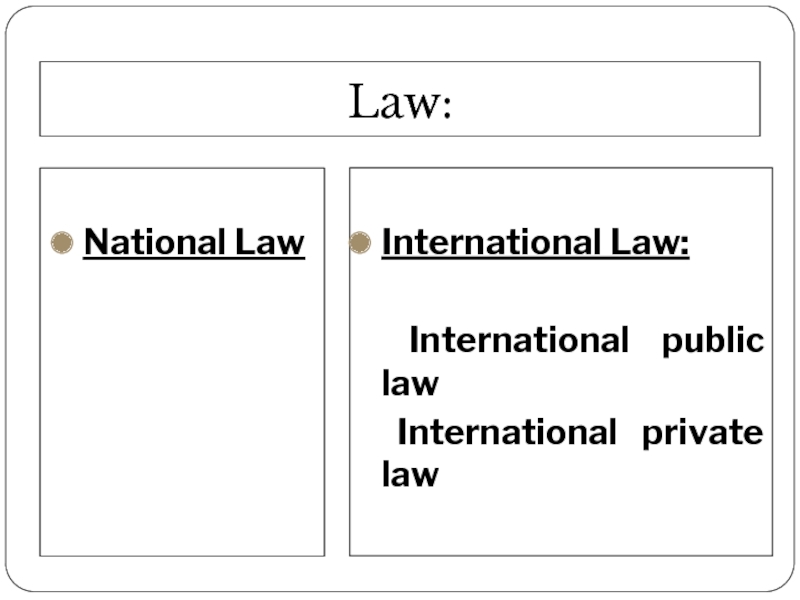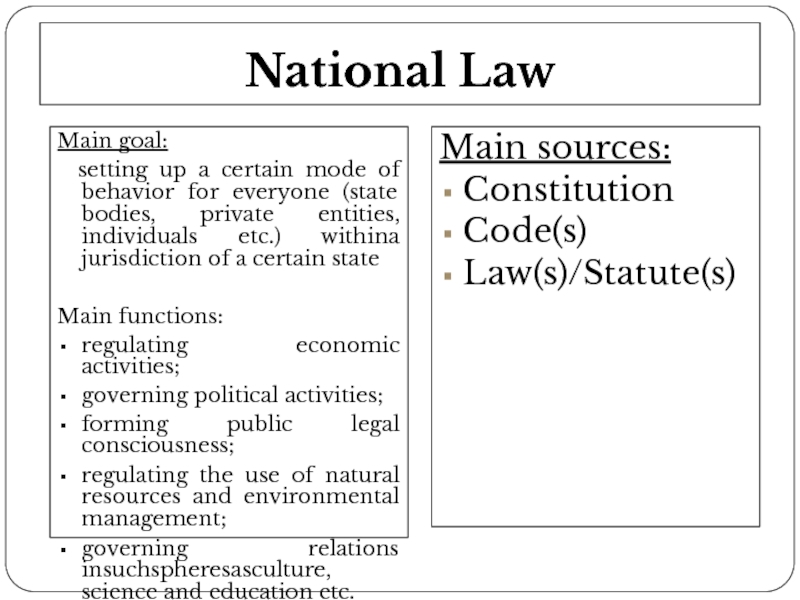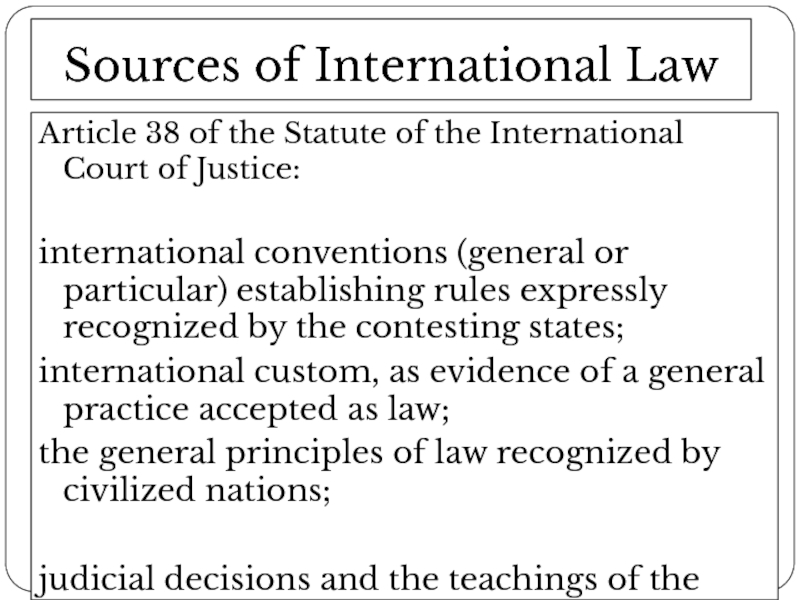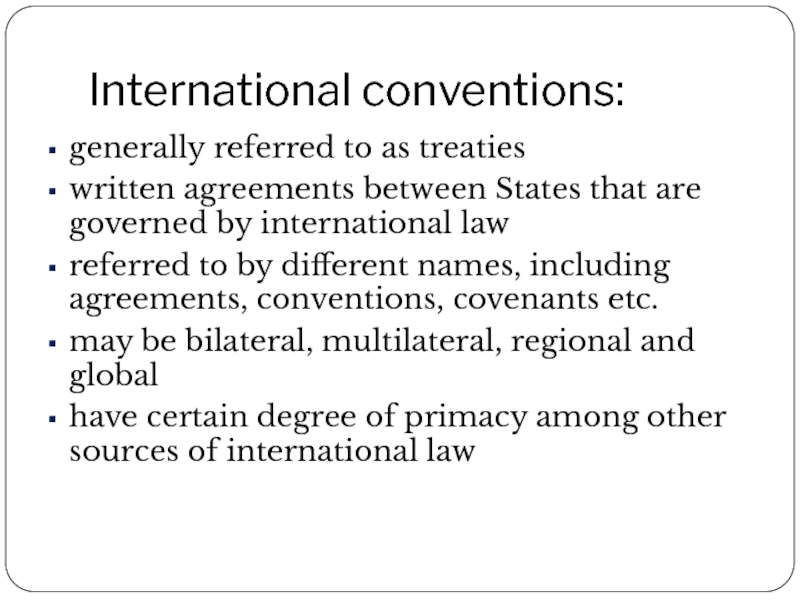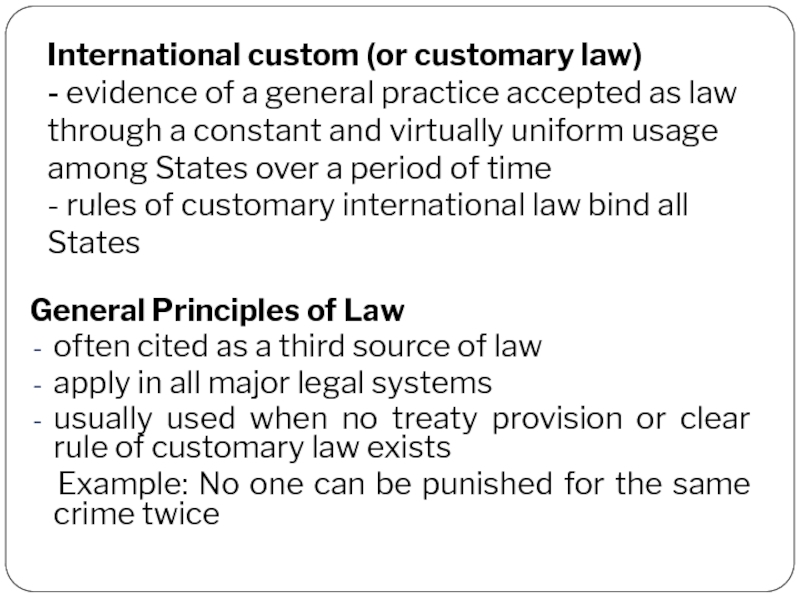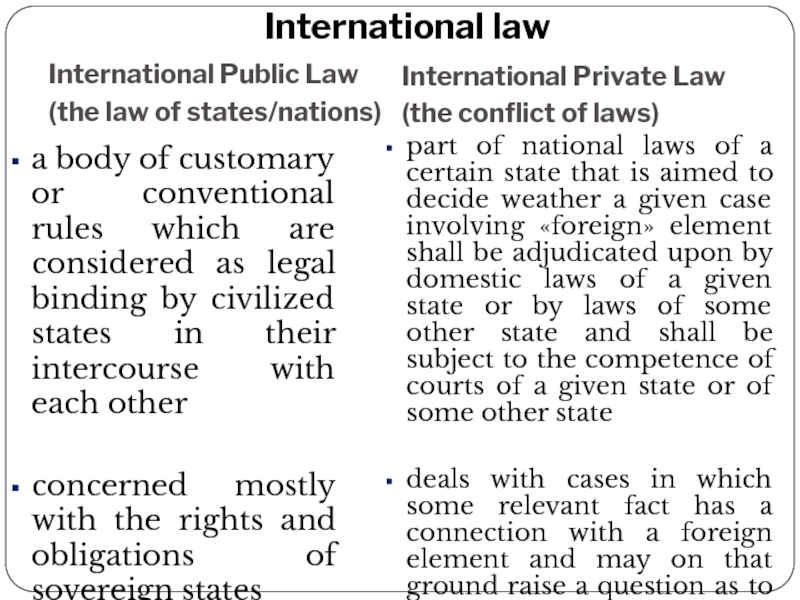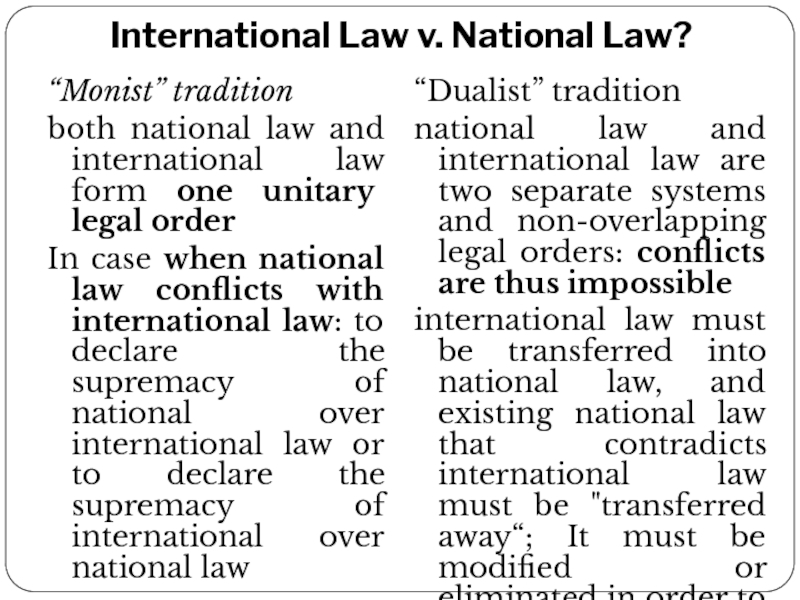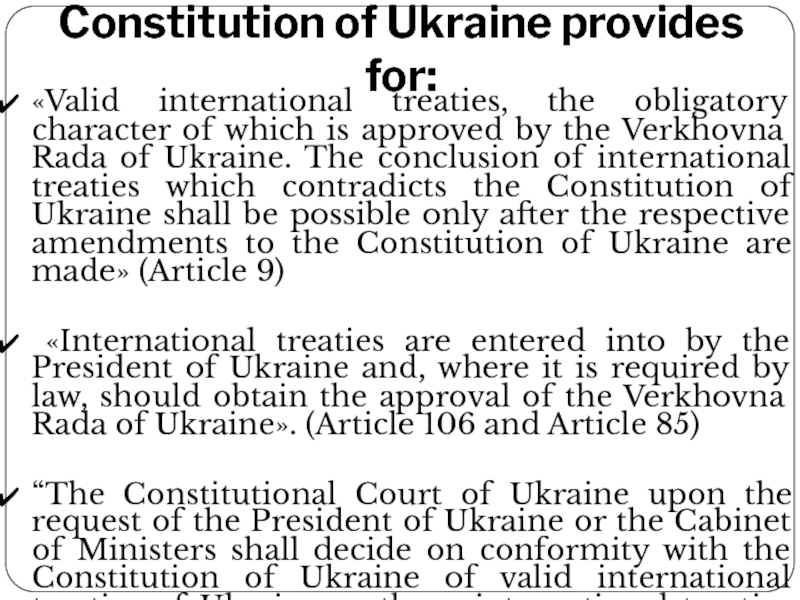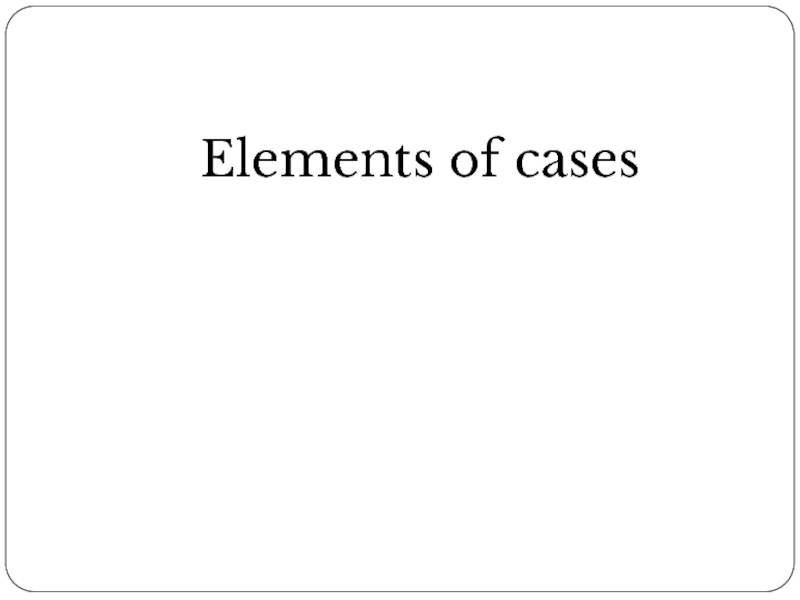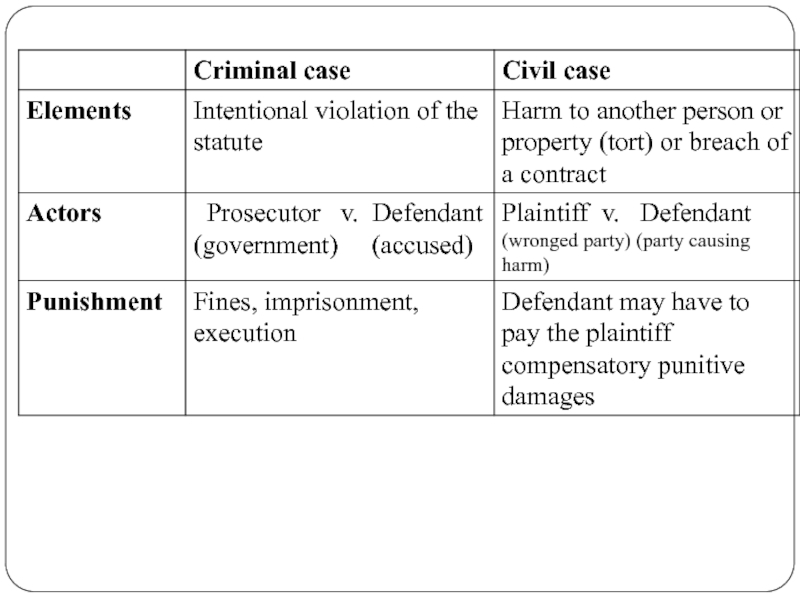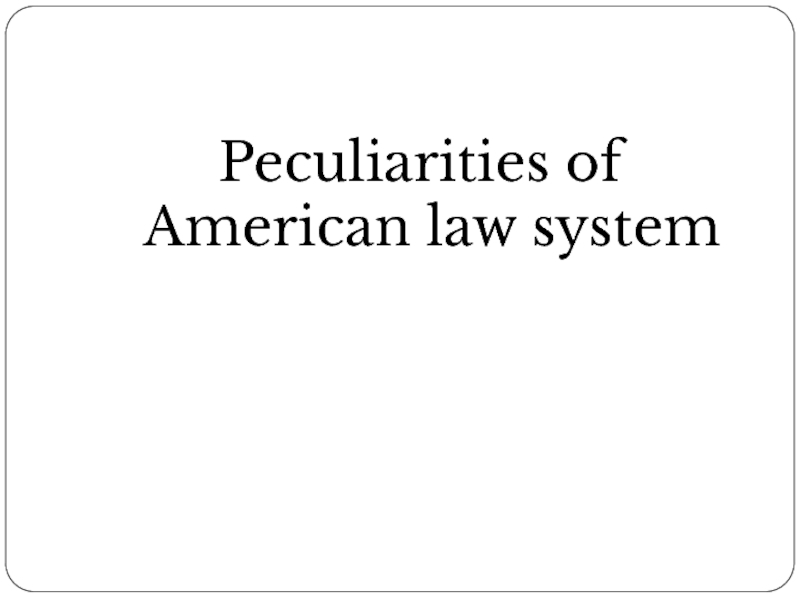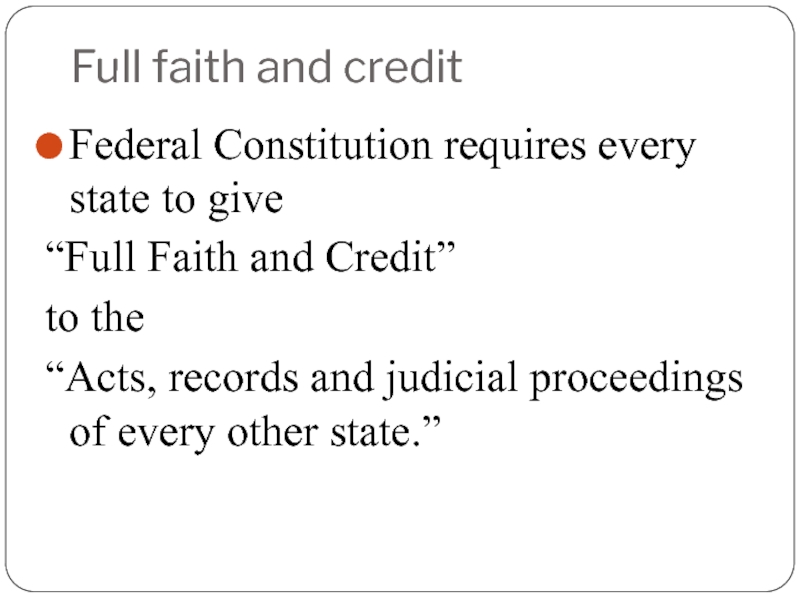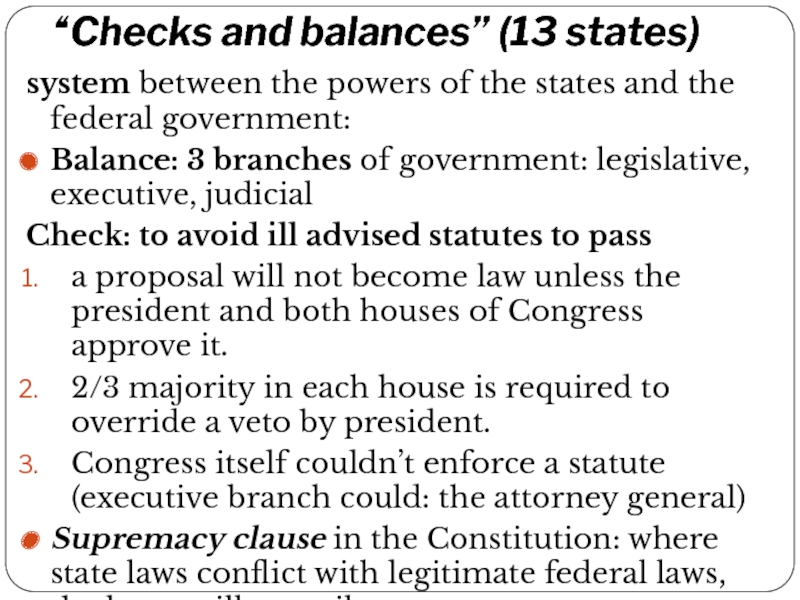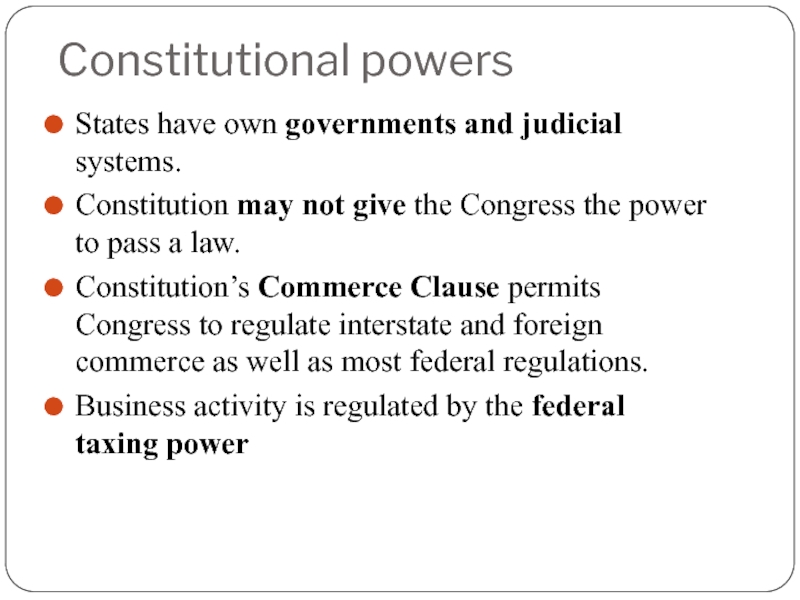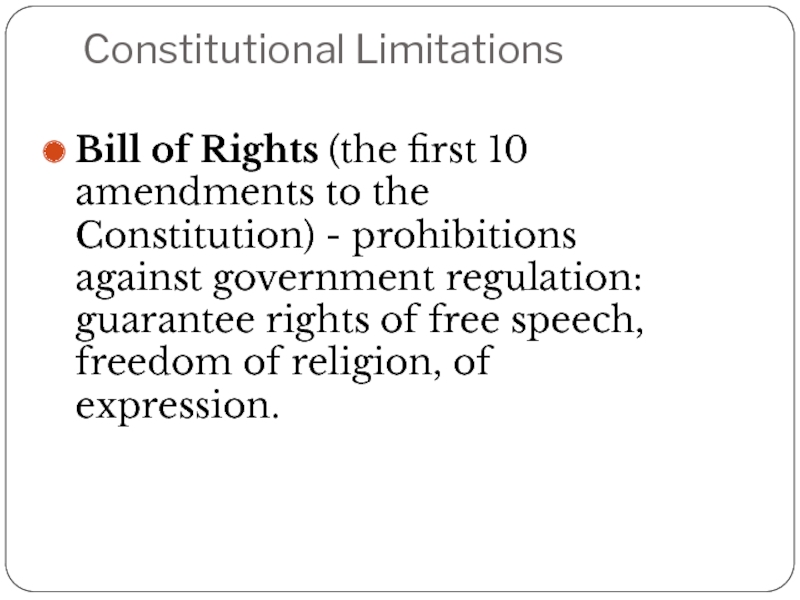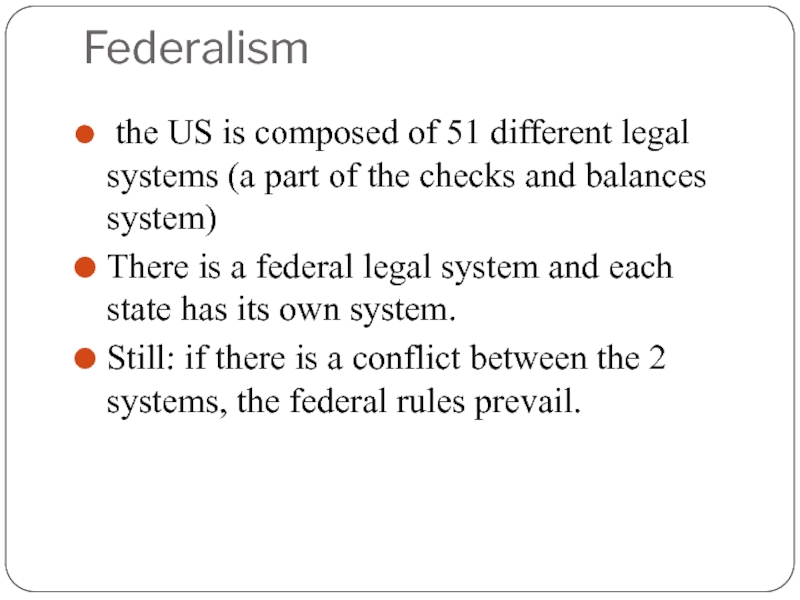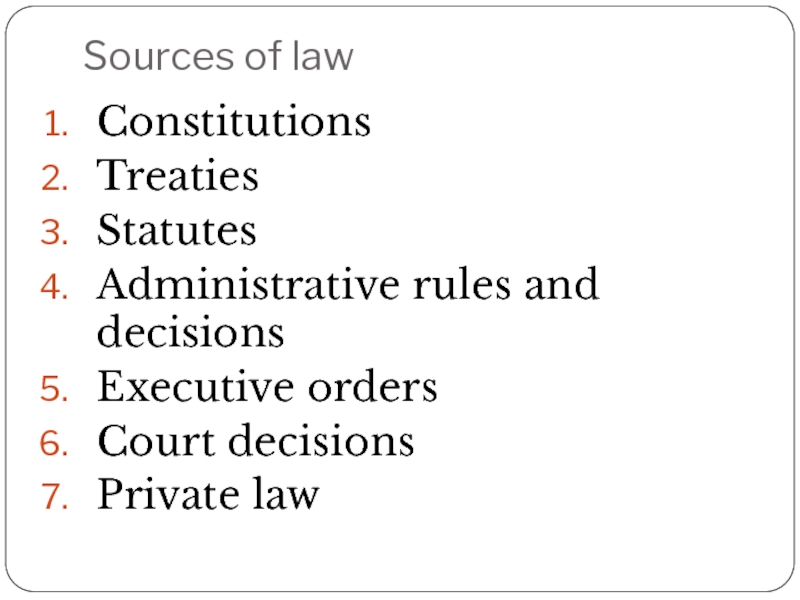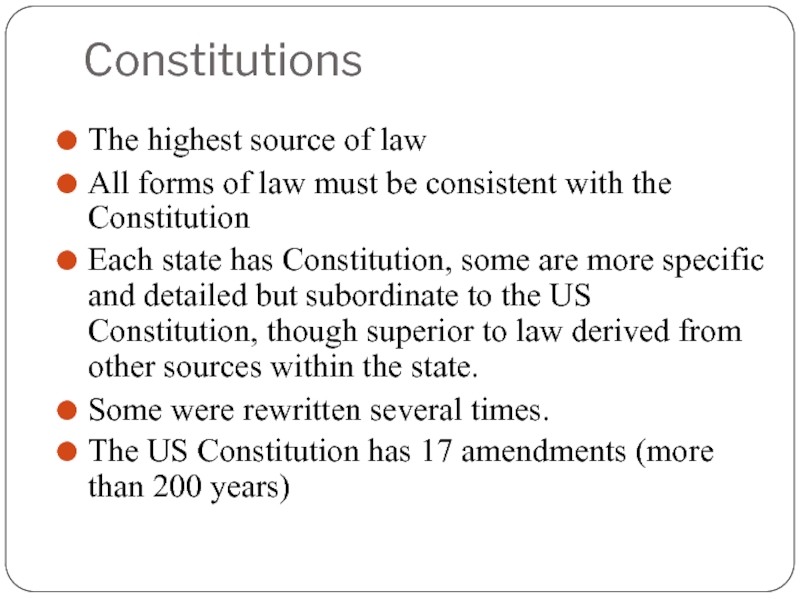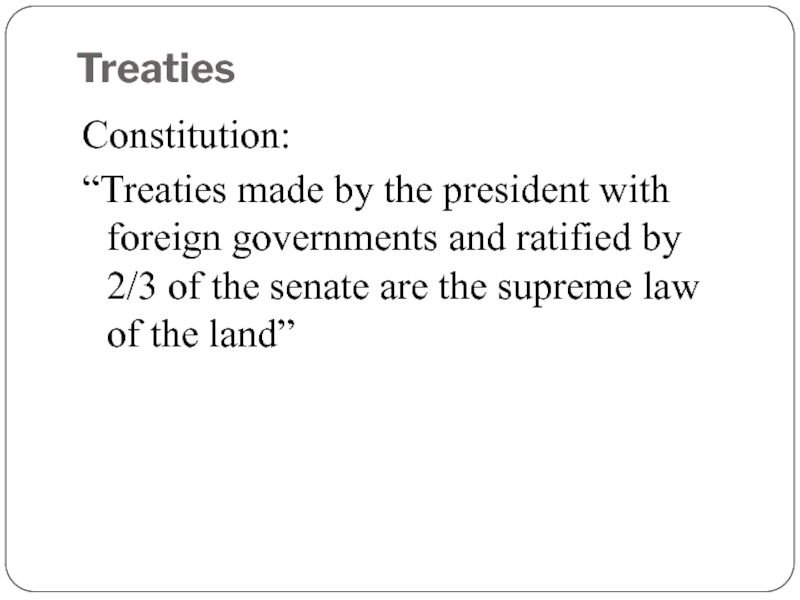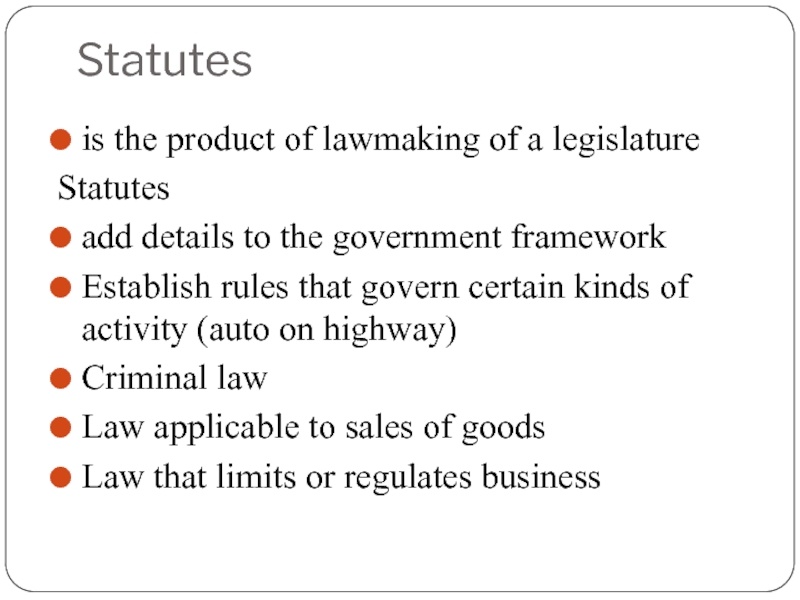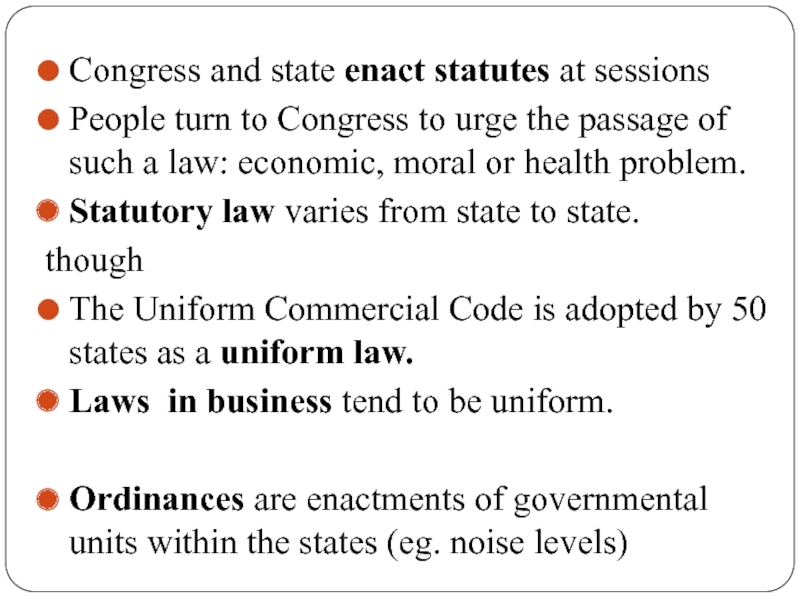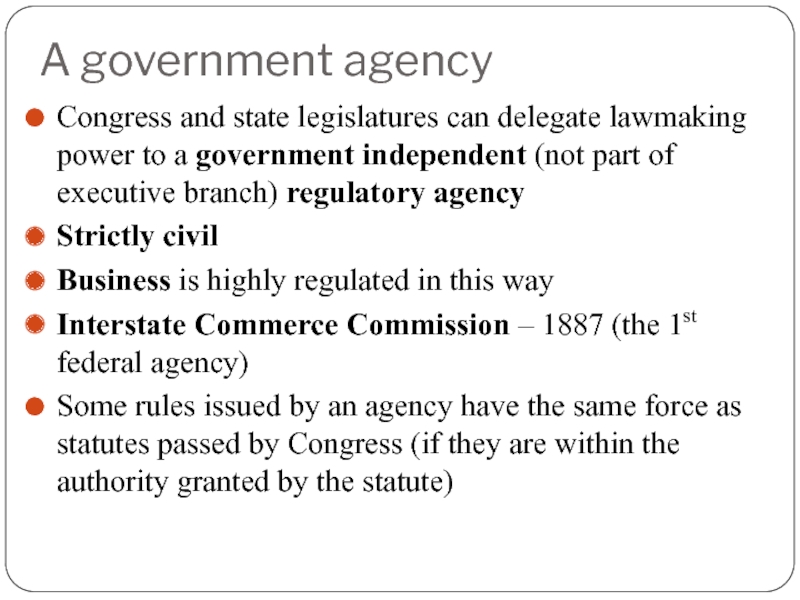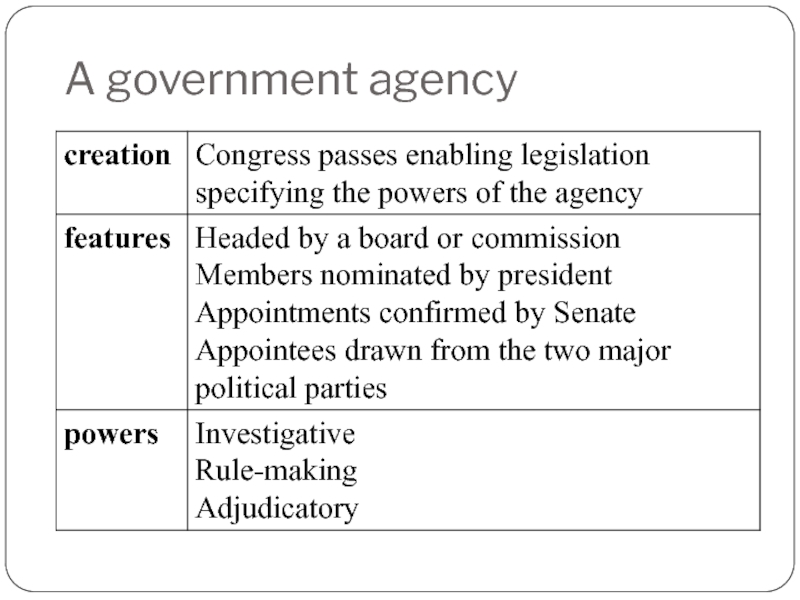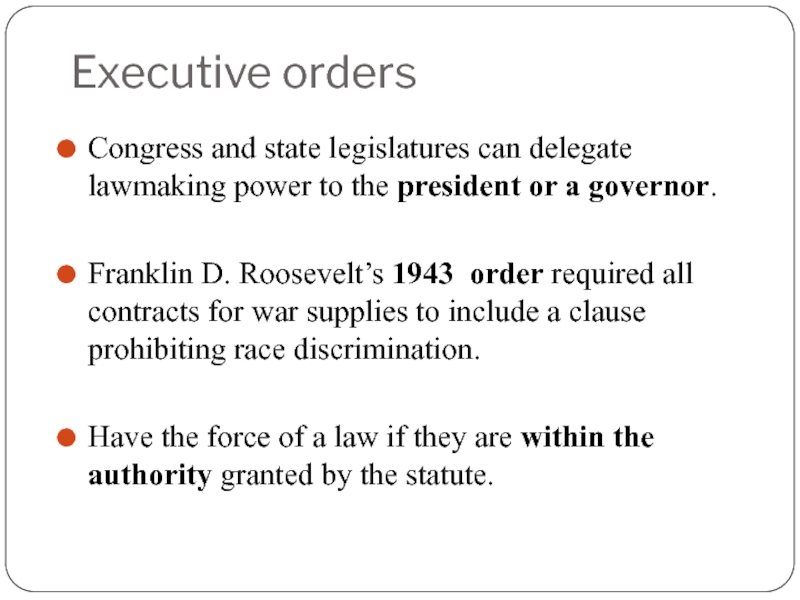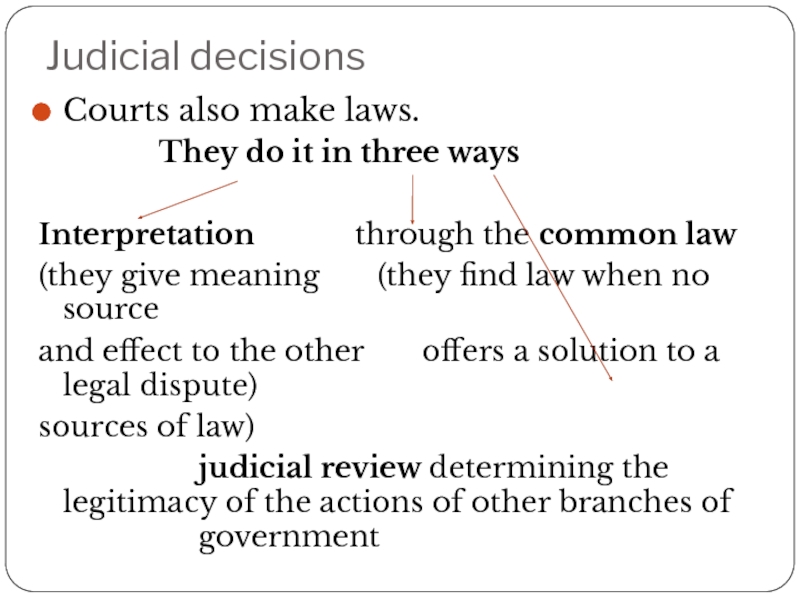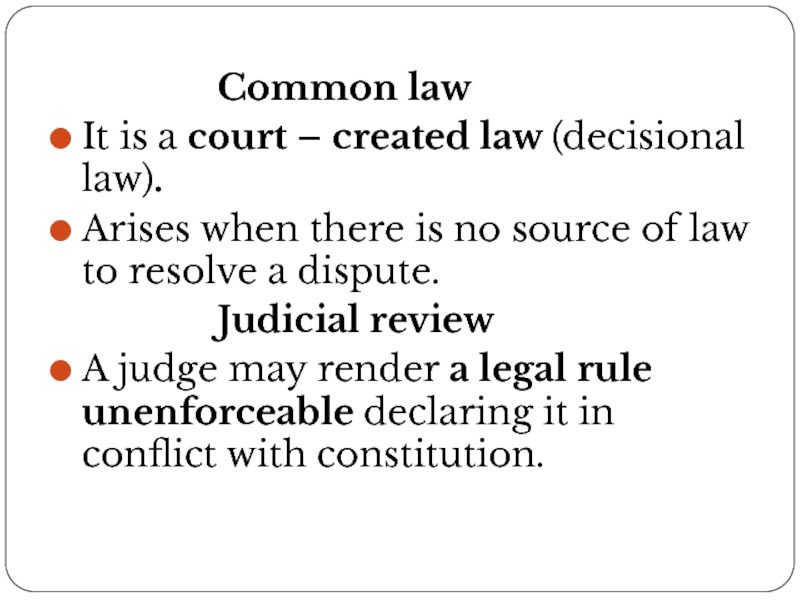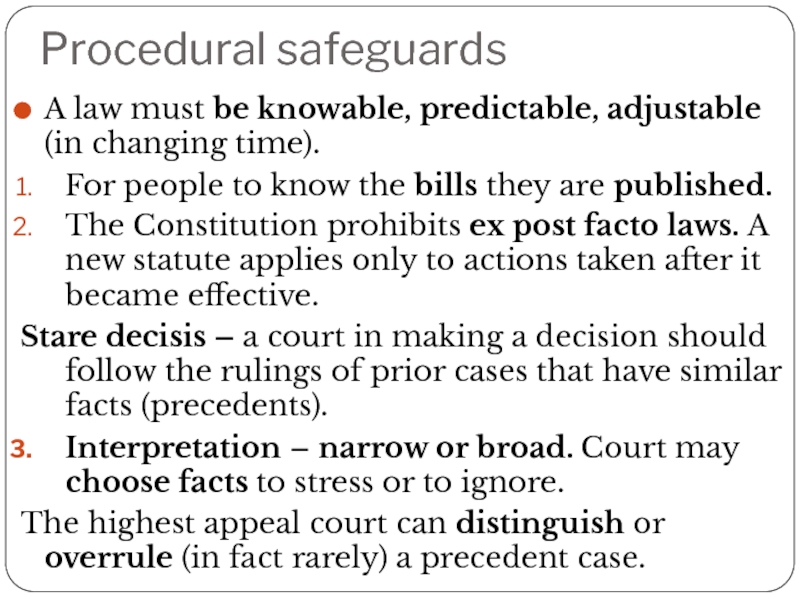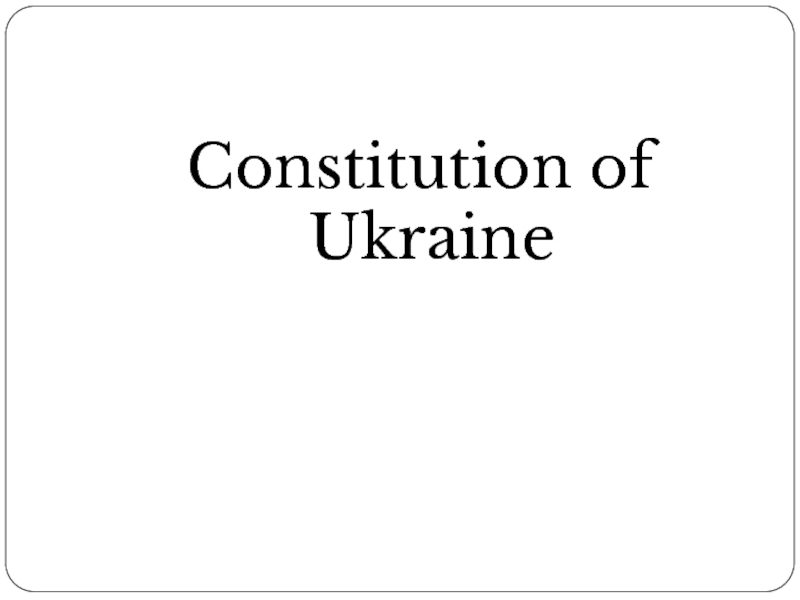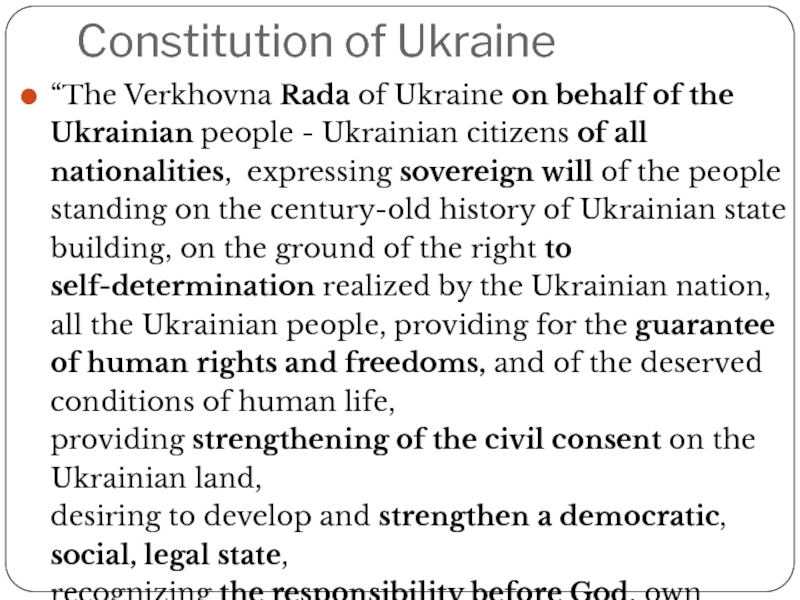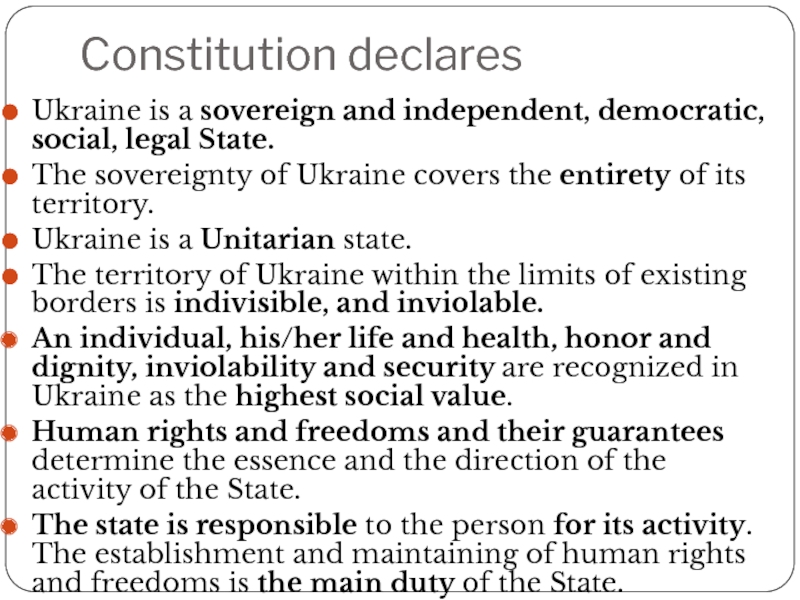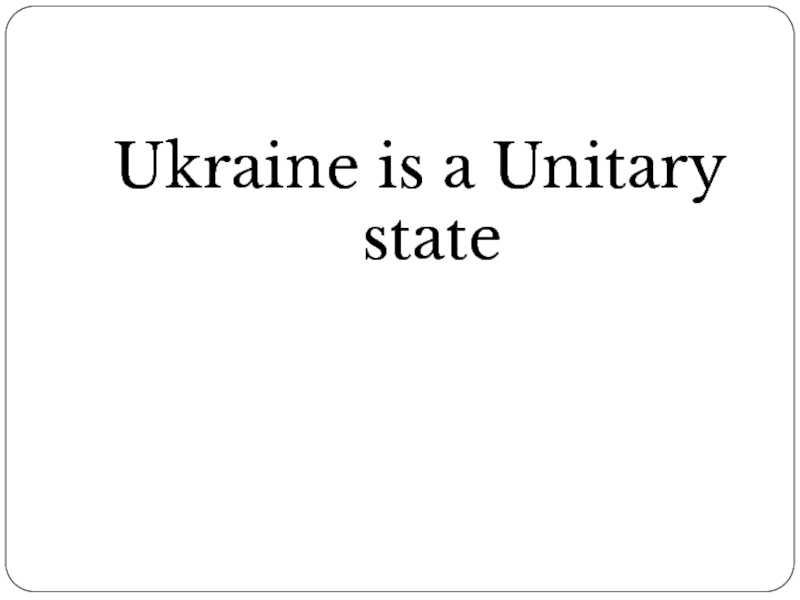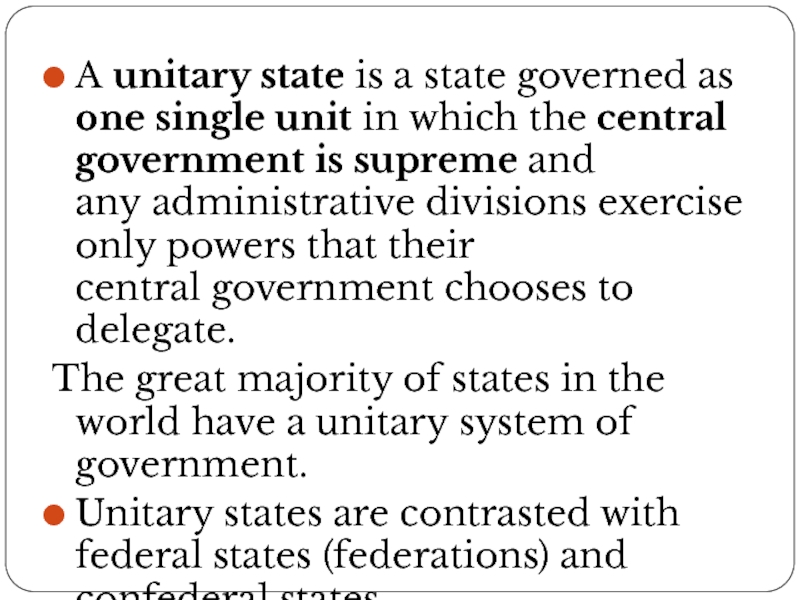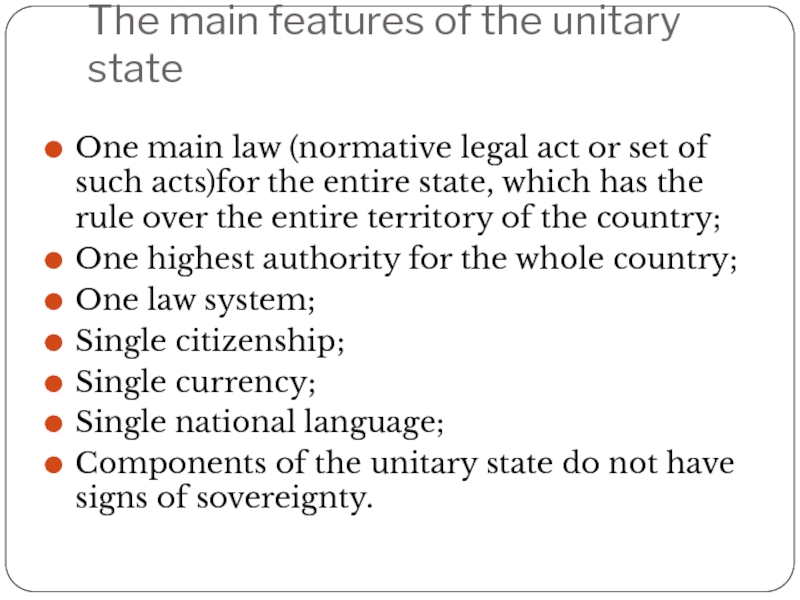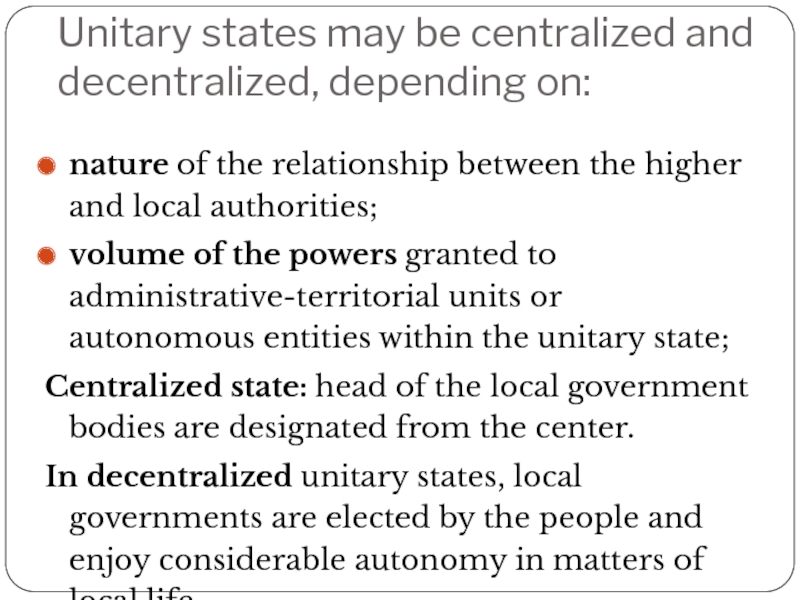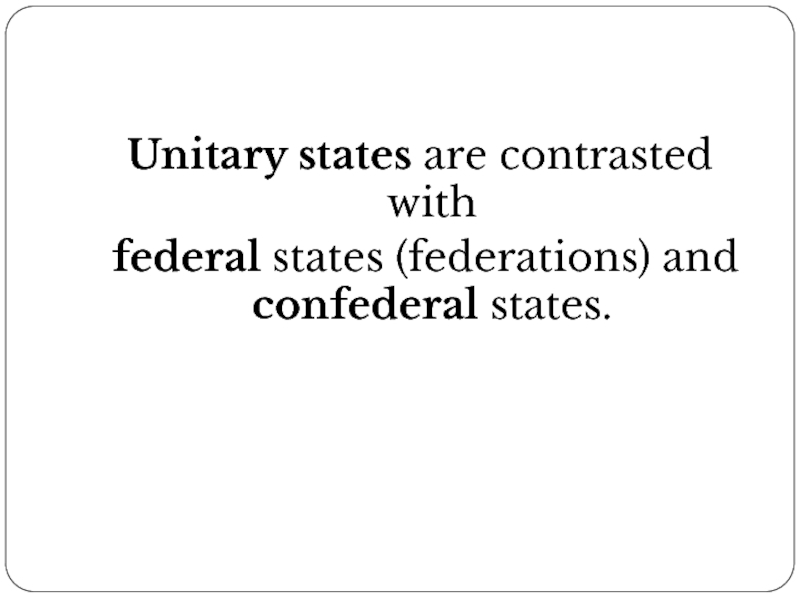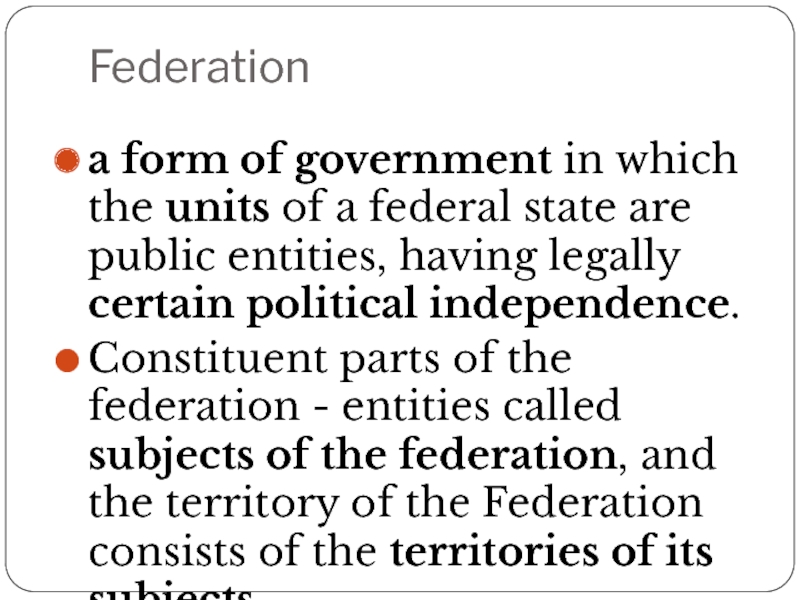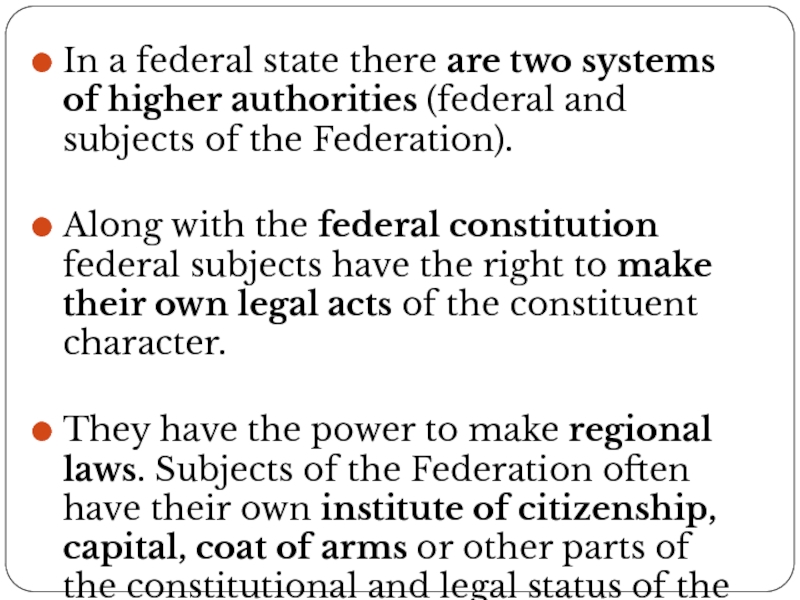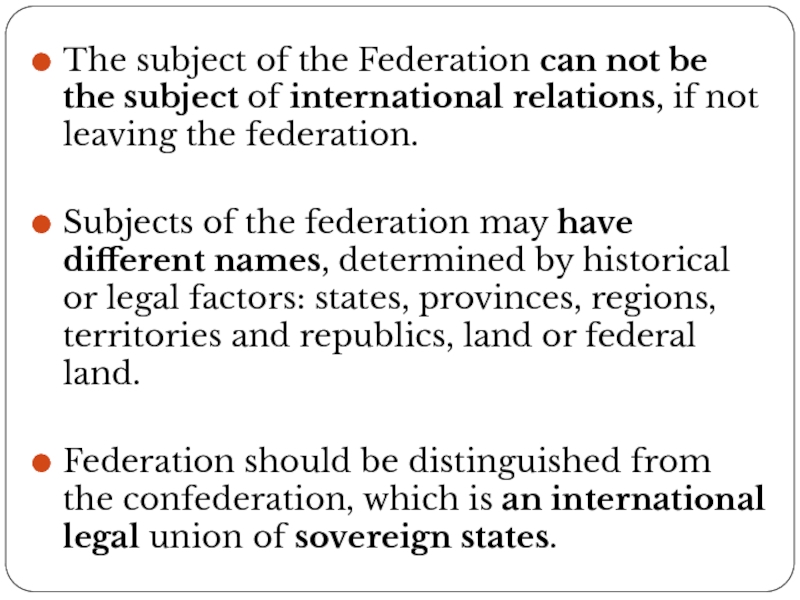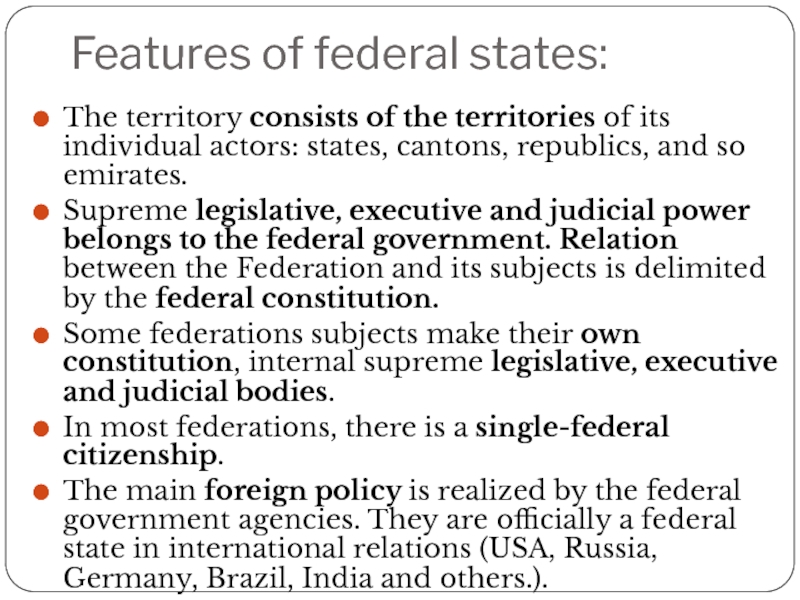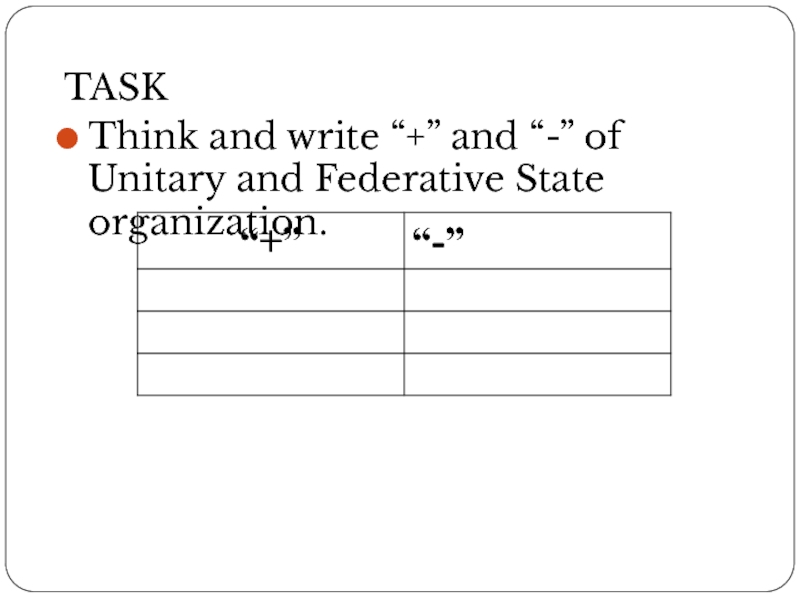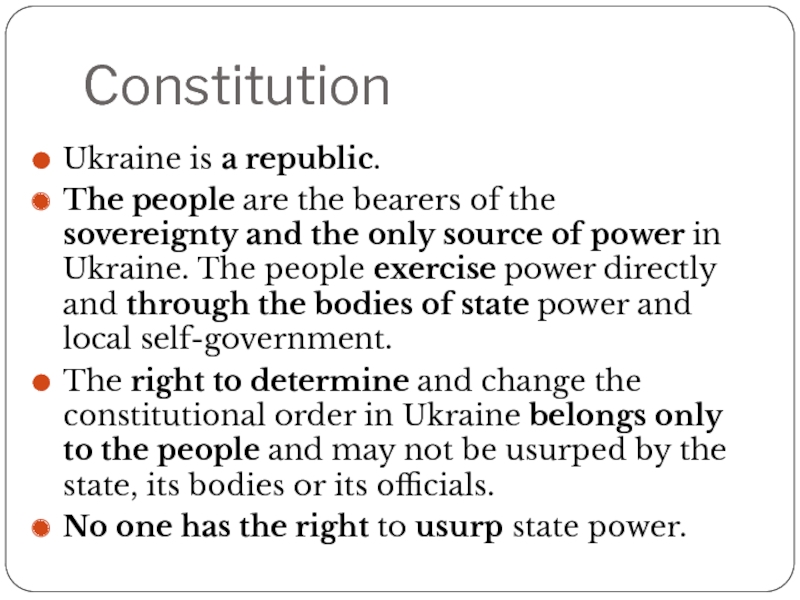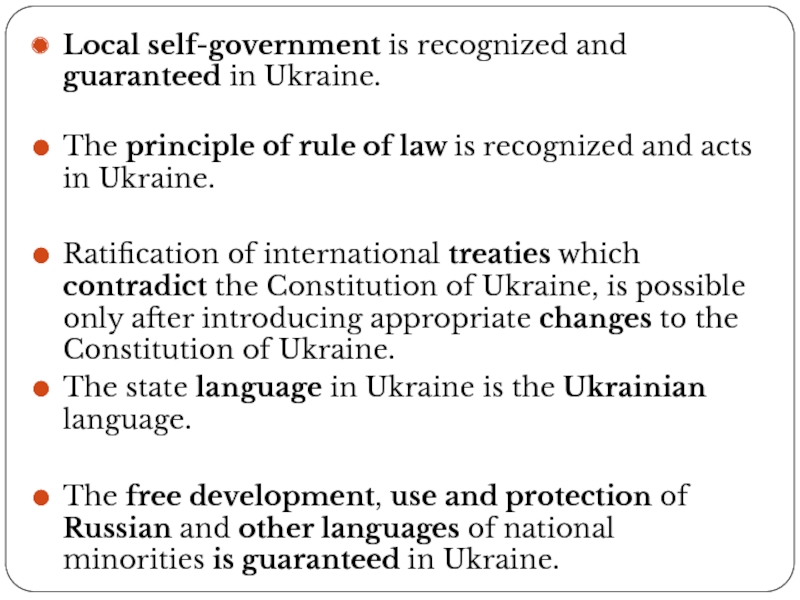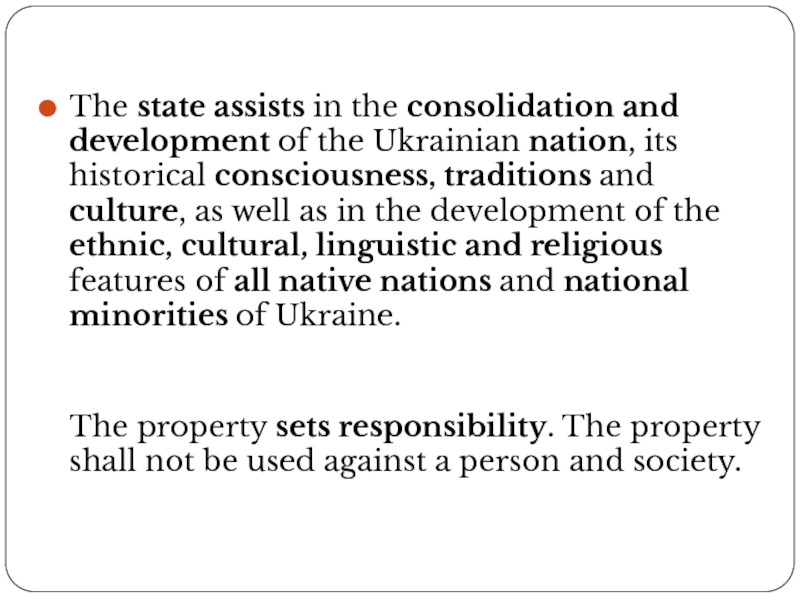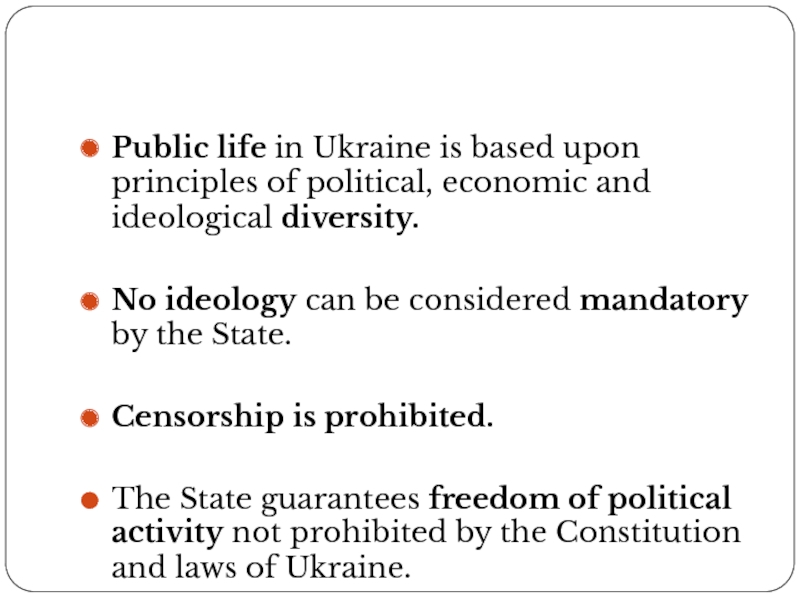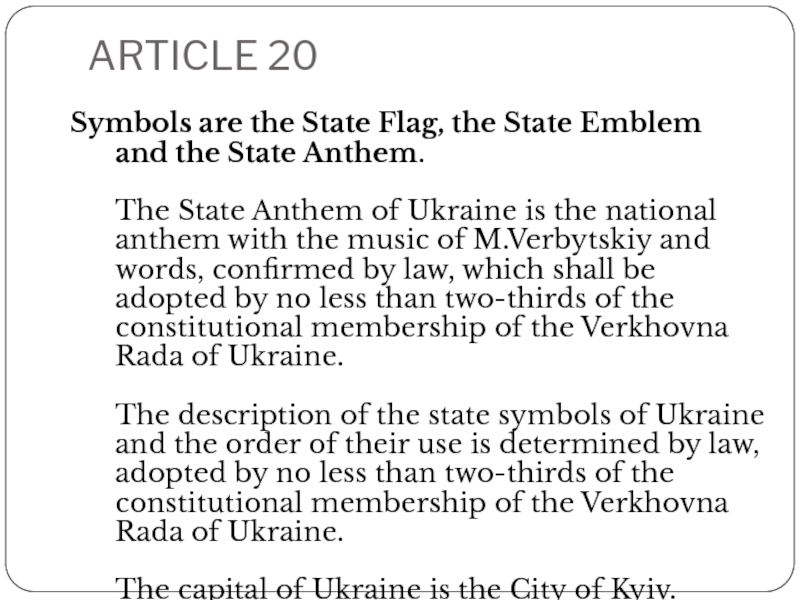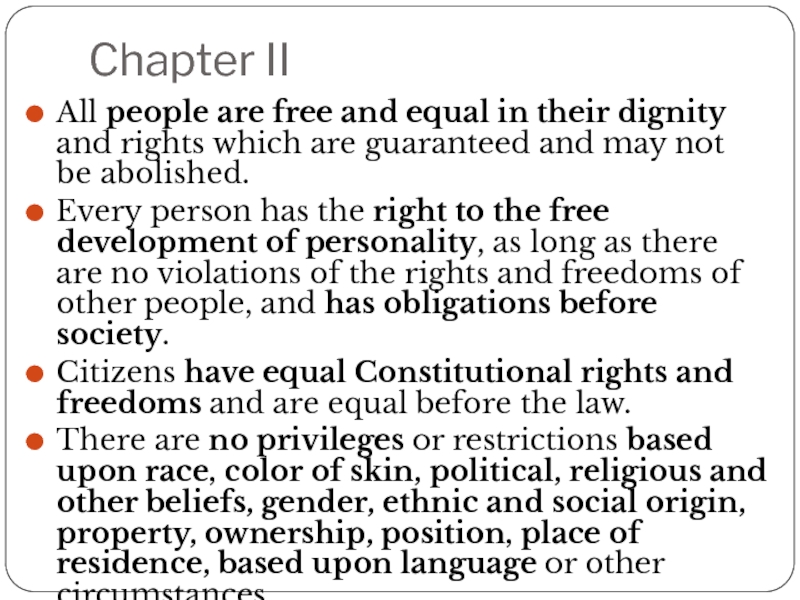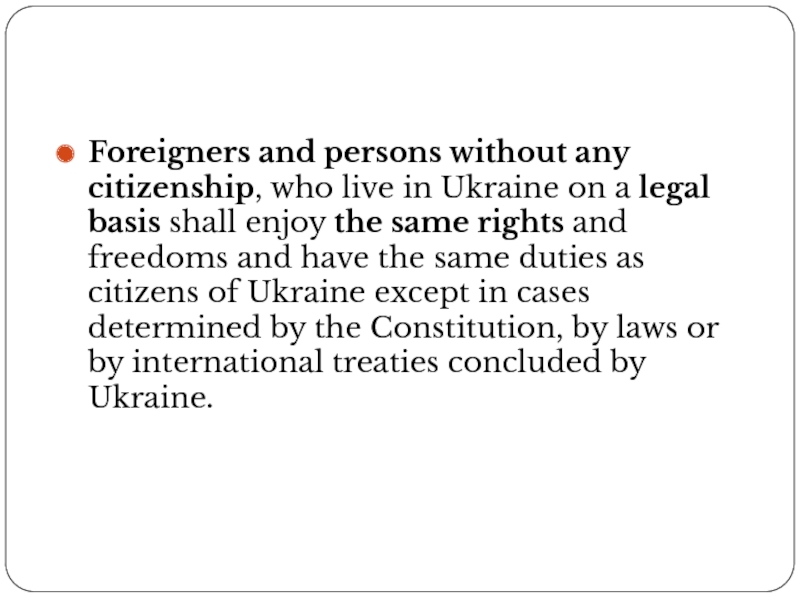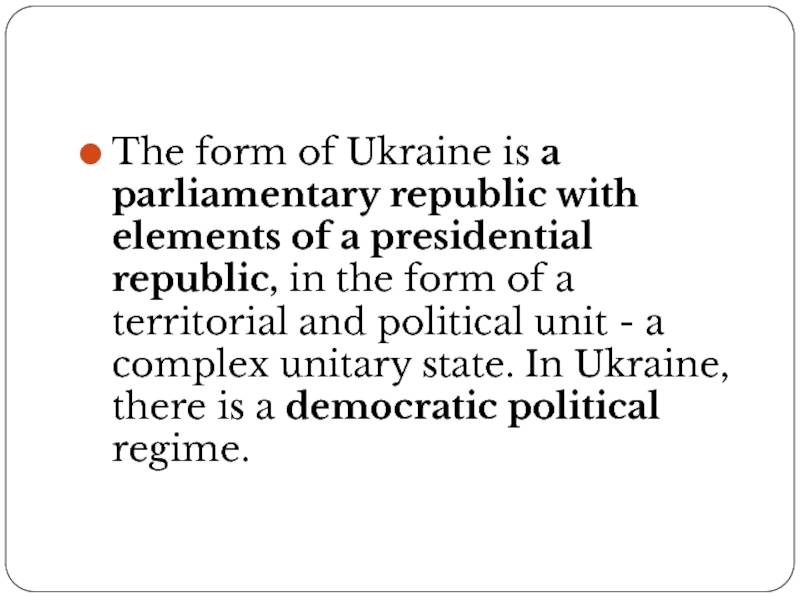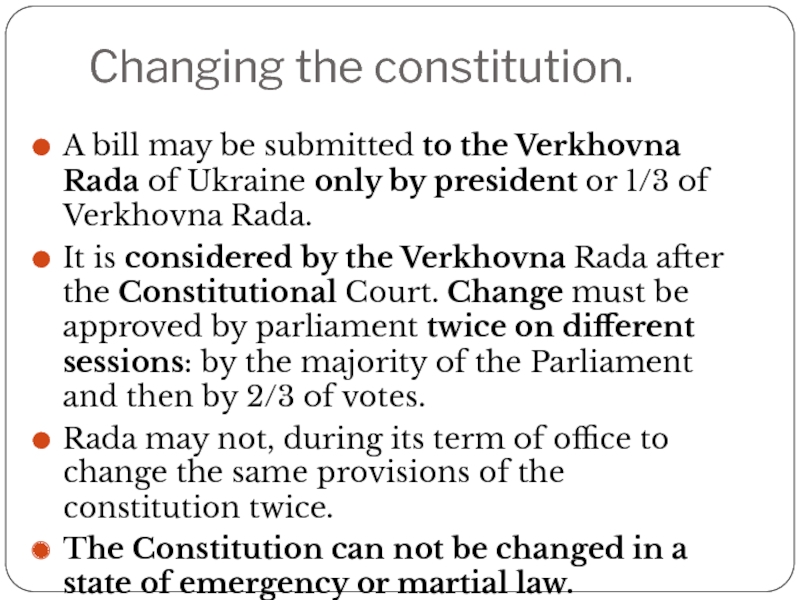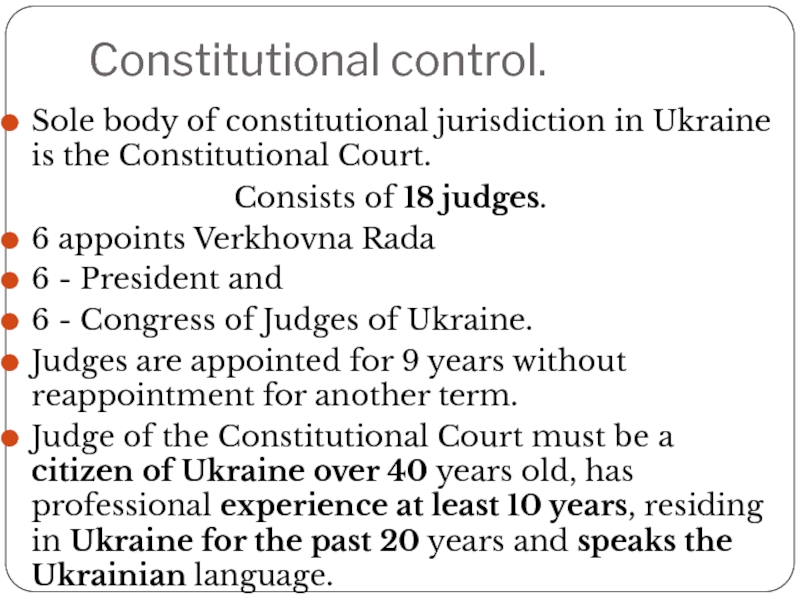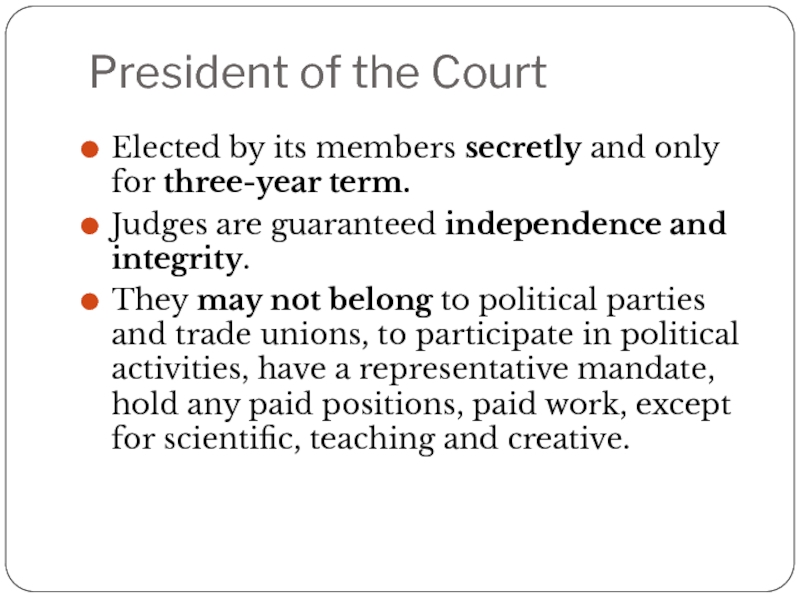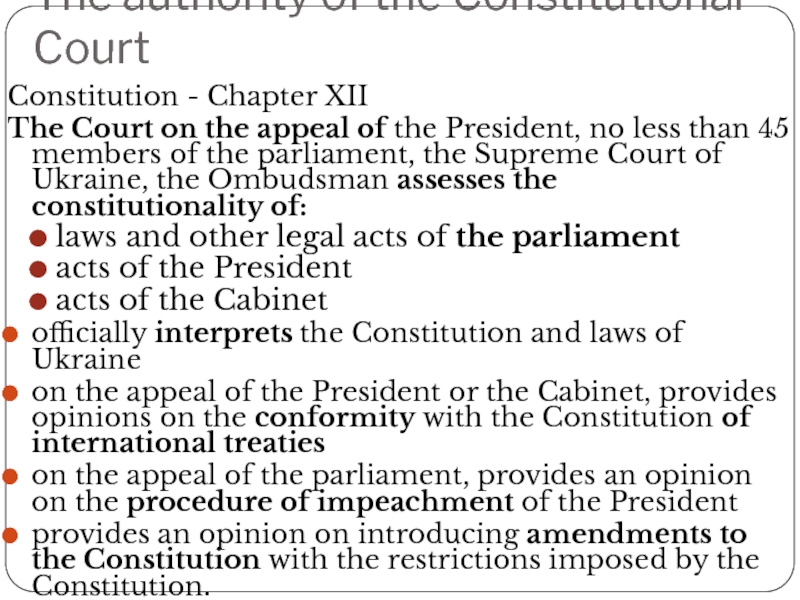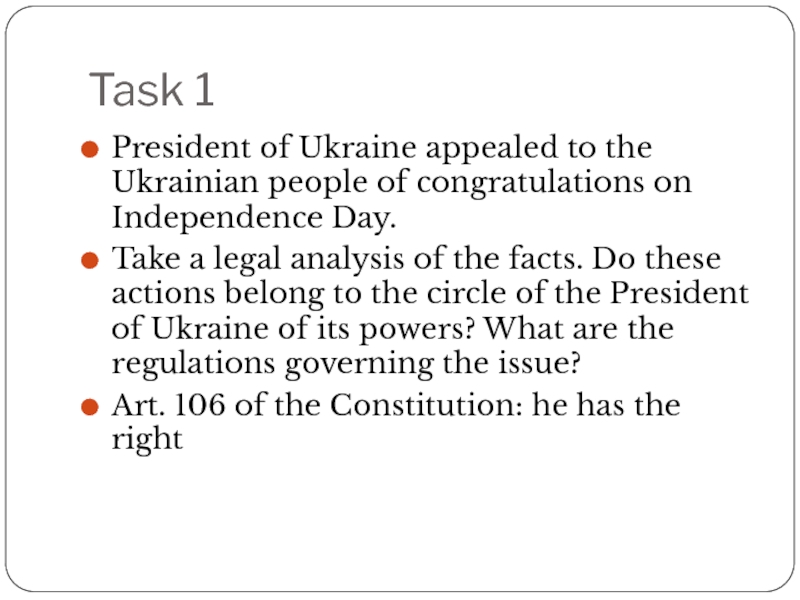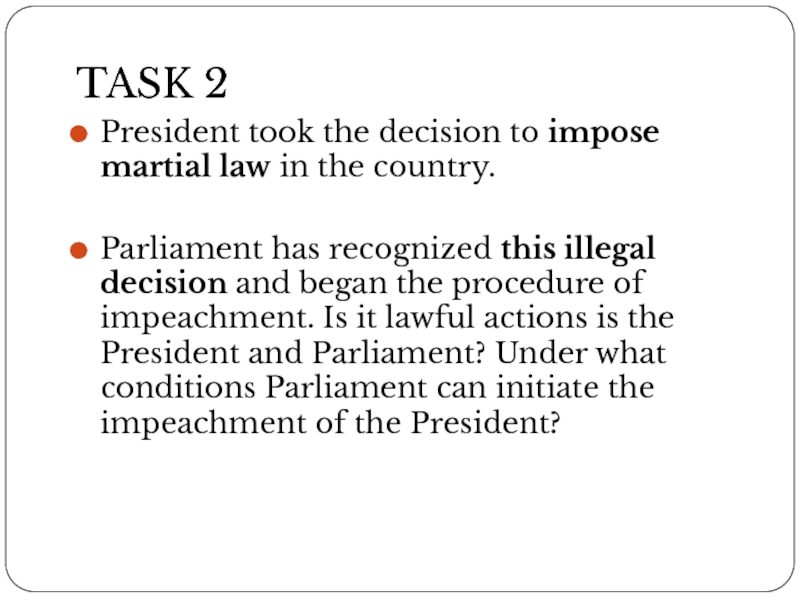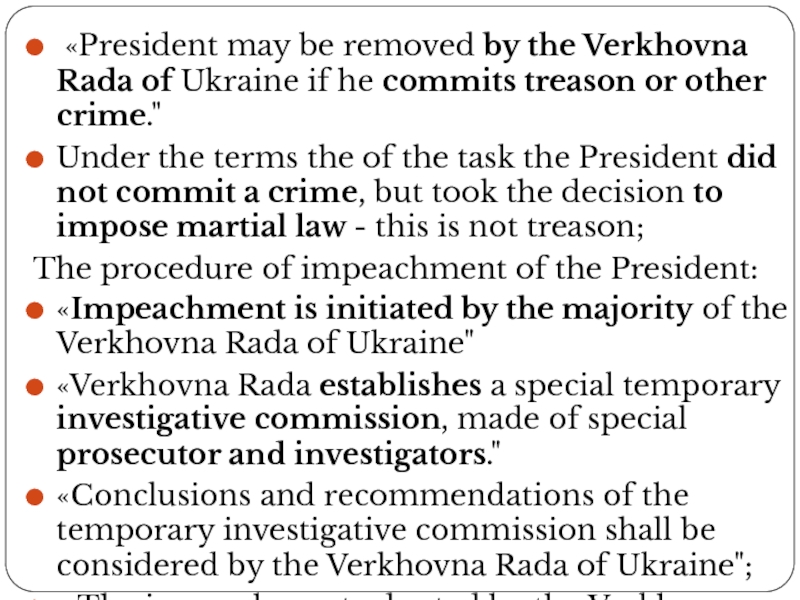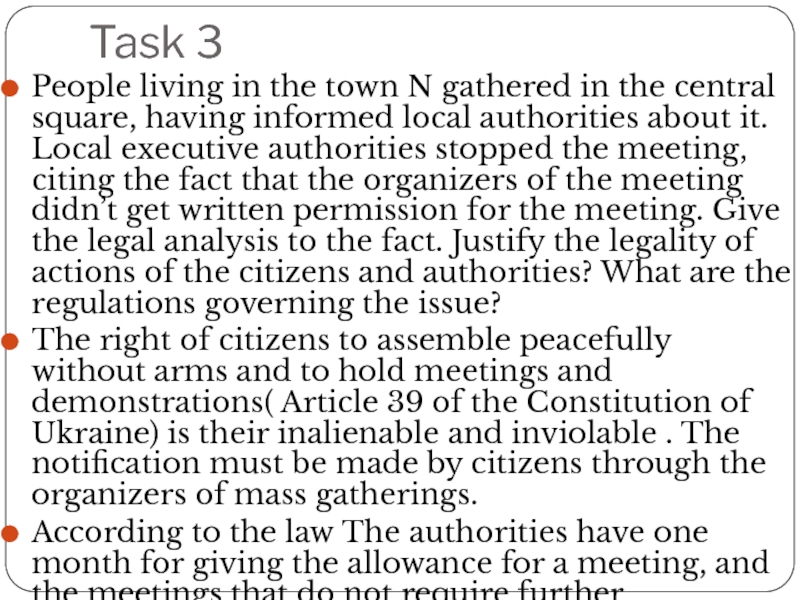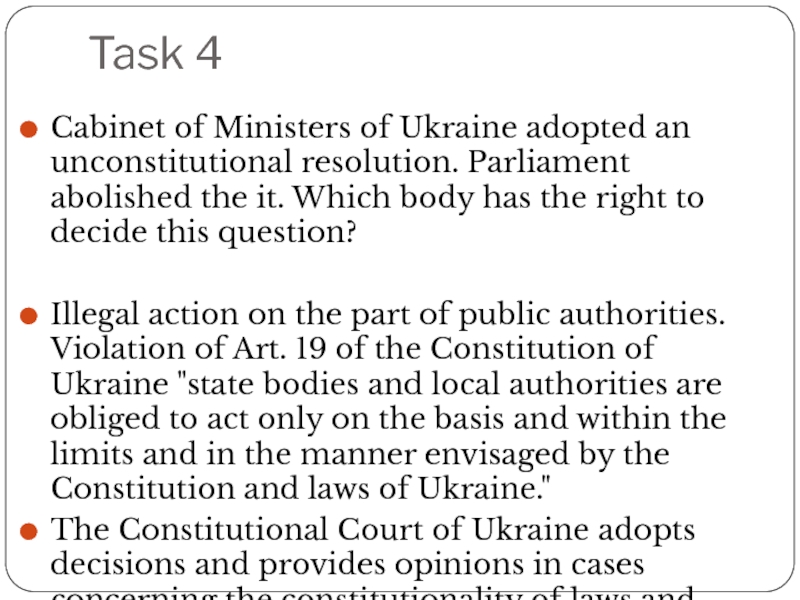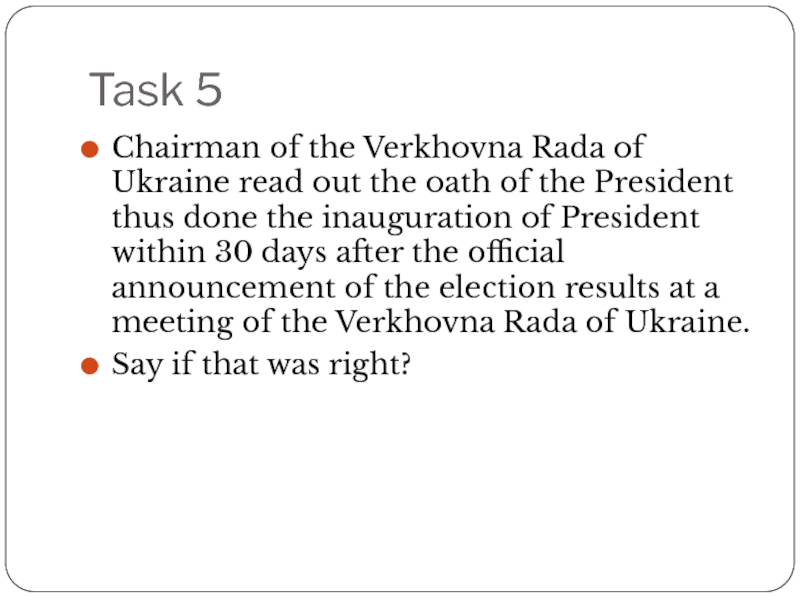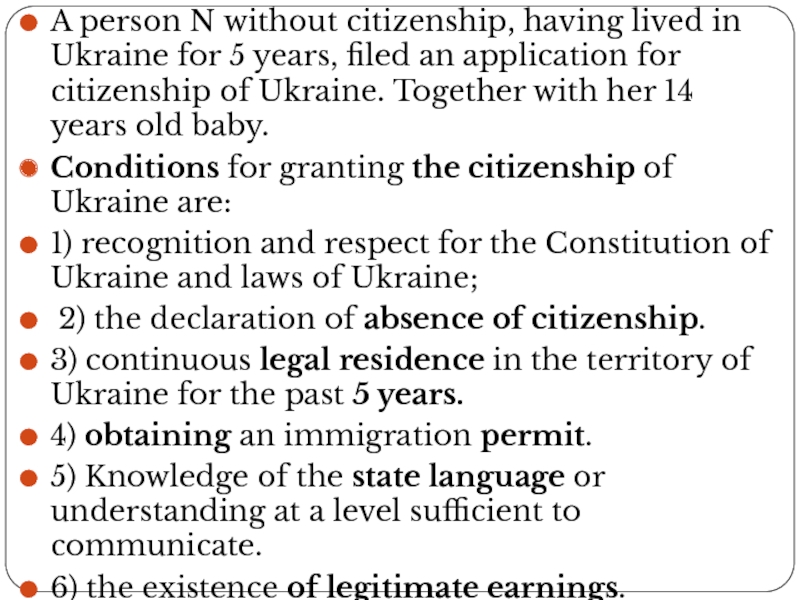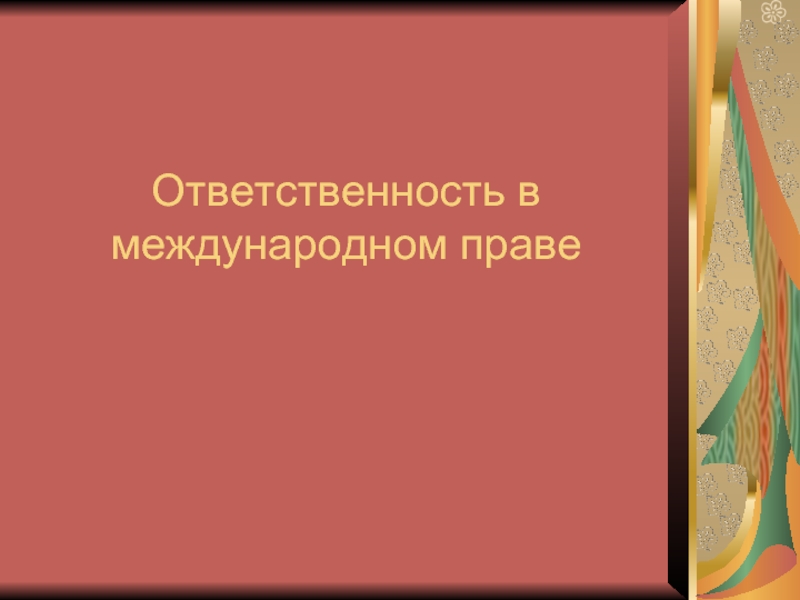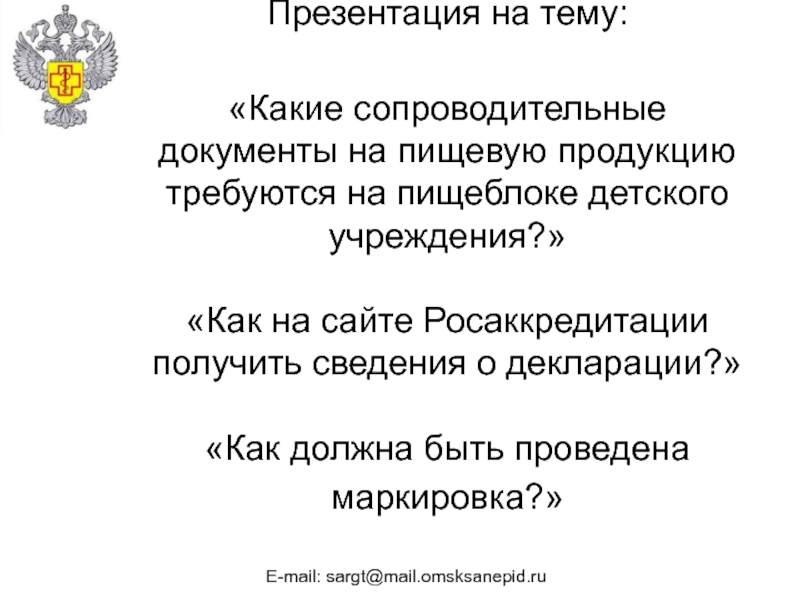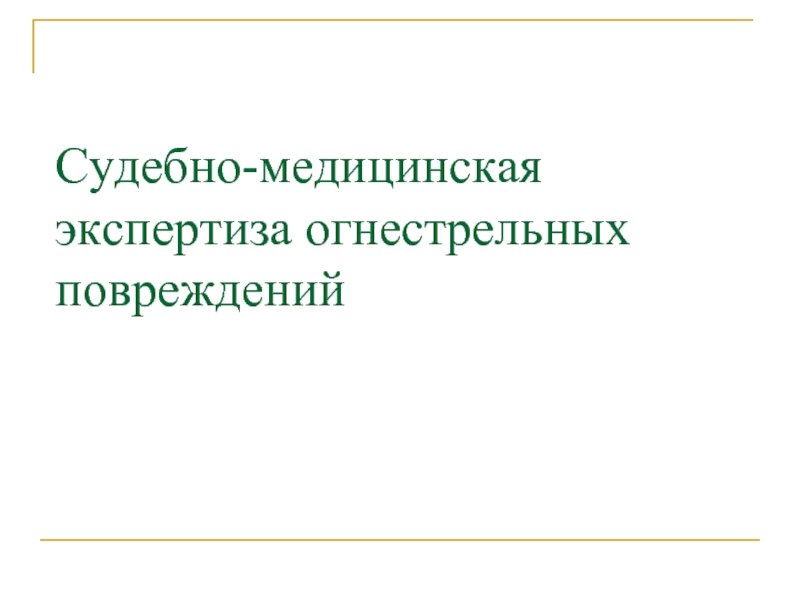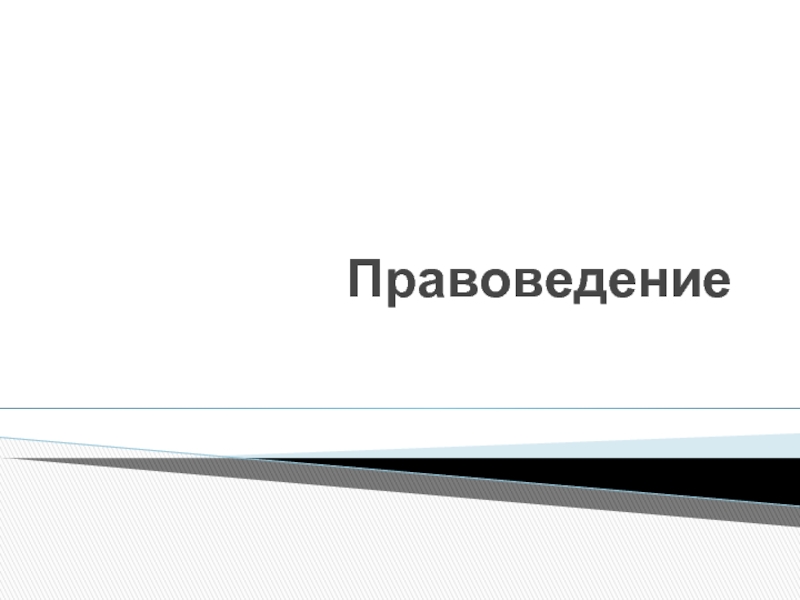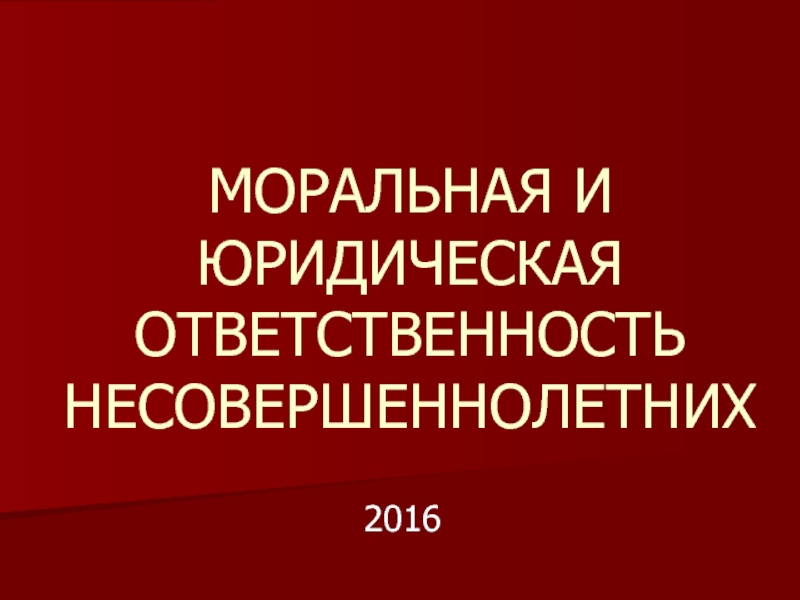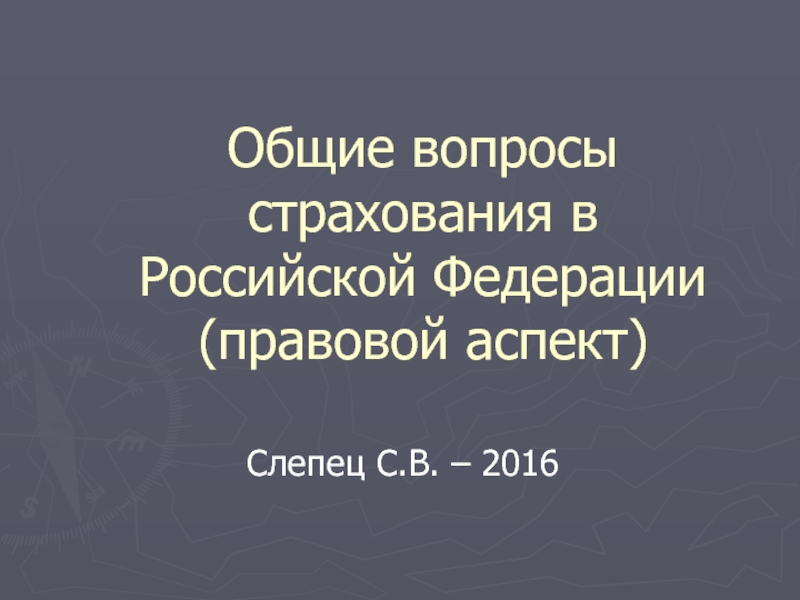- Главная
- Разное
- Дизайн
- Бизнес и предпринимательство
- Аналитика
- Образование
- Развлечения
- Красота и здоровье
- Финансы
- Государство
- Путешествия
- Спорт
- Недвижимость
- Армия
- Графика
- Культурология
- Еда и кулинария
- Лингвистика
- Английский язык
- Астрономия
- Алгебра
- Биология
- География
- Детские презентации
- Информатика
- История
- Литература
- Маркетинг
- Математика
- Медицина
- Менеджмент
- Музыка
- МХК
- Немецкий язык
- ОБЖ
- Обществознание
- Окружающий мир
- Педагогика
- Русский язык
- Технология
- Физика
- Философия
- Химия
- Шаблоны, картинки для презентаций
- Экология
- Экономика
- Юриспруденция
Law for Business презентация
Содержание
- 1. Law for Business
- 2. Quiz 1 Write the answer to
- 3. Effective manager Quiz 2 Write the answers
- 4. Think of it Remember and render situations
- 5. Legal rules To create the rules –
- 6. Law is A set of principles
- 7. How did the law appear?
- 8. 1.The theory of the social contract G.
- 9. 2. The Theological Theory Religious leaders
- 10. 3. The Violence Theory K.Kautsky, E.Dyuring,
- 11. 4. The Psychological Theory G.Gard, L.
- 12. 5. The Natural Law Theory Lock, Rousseau,
- 13. 6. Normativizm K. Bergbom,G. Shershenevich, J.
- 14. 7. The Sociological Theory Ehrlikh, S.Muromtsev, G.Shershenevich.
- 15. Functions of law Keeping the peace
- 16. It regulates behavior of an individual to
- 17. Basic Notions
- 18. Rule: An authoritative statement of
- 19. Give examples of rules. Where do you usually meet rules?
- 20. Norm: A standard of achievement or behavior
- 21. Give examples of norms. Where do you usually meet norms? Who makes norms?
- 22. Law (Statute): A set of rules adopted
- 23. Tell the main differences between a
- 24. Classification of law Substantive law Versus Procedural law Criminal law versus Civil law
- 25. Substantive law establishes Rights and duties for
- 26. Procedural law establishes The rules as
- 27. Criminal law defines Duties citizens owe to
- 28. Civil law establishes Private duties owed by
- 29. Law: National Law International Law:
- 30. National Law Main goal: setting up
- 31. Sources of International Law Article 38 of
- 32. International conventions: generally referred to as treaties
- 33. International custom (or customary law) - evidence
- 34. International law International Public Law (the
- 35. International Law v. National Law? “Monist” tradition
- 36. Constitution of Ukraine provides for: «Valid international
- 37. Elements of cases
- 39. Peculiarities of American law system
- 40. Full faith and credit Federal Constitution requires
- 41. “Checks and balances” (13 states) system between
- 42. Constitutional powers States have own governments and
- 43. Constitutional Limitations Bill of Rights (the first
- 44. Federalism the US is composed
- 45. Sources of law Constitutions Treaties
- 46. Constitutions The highest source of law All
- 47. Treaties Constitution:
- 48. Statutes is the product of lawmaking of
- 49. Congress and state enact statutes at sessions
- 50. A government agency Congress and state legislatures
- 51. A government agency
- 52. Executive orders Congress and state legislatures can
- 53. Judicial decisions Courts also make laws. They
- 54. Common law It is a court –
- 55. Procedural safeguards A law must be knowable,
- 56. Constitution of Ukraine
- 57. Constitution of Ukraine “The Verkhovna Rada of
- 58. Constitution declares Ukraine is a sovereign
- 59. Ukraine is a Unitary state
- 60. A unitary state is a state governed as one single unit
- 61. The main features of the unitary state
- 62. Unitary states may be centralized and decentralized,
- 63. Unitary states are contrasted with federal states (federations) and confederal states.
- 64. Federation a form of government in
- 65. In a federal state there are two
- 66. The subject of the Federation can not
- 67. Features of federal states: The territory
- 68. TASK Think and write “+” and “-” of Unitary and Federative State organization.
- 69. Constitution Ukraine is a republic. The people
- 70. Local self-government is recognized and guaranteed in
- 71. The state assists in the consolidation
- 72. Public life in Ukraine is based upon
- 73. ARTICLE 20 Symbols are the State Flag,
- 74. Chapter II All people are free
- 75. Foreigners and persons without any citizenship, who
- 76. The form of Ukraine is a
- 77. Changing the constitution. A bill may
- 78. Constitutional control. Sole body of constitutional jurisdiction
- 79. President of the Court Elected by
- 80. The authority of the Constitutional Court Constitution
- 81. Task 1 President of Ukraine appealed to
- 82. TASK 2 President took the decision to
- 83. «President may be removed by the
- 84. Task 3 People living in the town
- 85. Task 4 Cabinet of Ministers of Ukraine
- 86. Task 5 Chairman of the Verkhovna Rada
- 87. A person N without citizenship, having lived
Слайд 2Quiz 1
Write the answer to the question
What is law
The police.
The government’s behavior.
The reflection of the people, organizations and values; it serves and controls.
It comes from the past, reflects the present and paves the way to the future.
Слайд 3Effective manager
Quiz 2
Write the answers to the questions
What is an
The one who develops the knowledge of both law and business.
Why is that so important?
Слайд 4Think of it
Remember and render situations in your lives where you
Слайд 5Legal rules
To create the rules – legislatures and government agencies
To enforce
To resolve the disputes – courts
The law requires people to conform their behavior to a particular standard.
Слайд 6Law is
A set of principles that:
Have general application to society
Developed
“A process of legal interpretation” (court)
May have sanctions against the law breakers
Слайд 81.The theory of the social contract
G. Grotskiy, G. Ghobbs, D. Lonk,
To ensure a normal life, people conclude among themselves an agreement on the establishment of the state, voluntarily handing it some of their rights.
Noting the progressive nature of many of the social contract theory, which opposed the feudal state, the king in this society, tyranny, inequality, it should be noted that there is no scientific evidence supporting this theory. Also, this theory ignores the need for economic prerequisites for the state to appear.
Слайд 92. The Theological Theory
Religious leaders of the ancient East, medieval
The idea of inviolability of the state, the need for submission to the will of the state, as the government of God, but at the same time, and depending on the state itself from the divine will, manifested through the church or other religious organizations. Judgment on the legality of the origin and use of the power of the ruler belongs to the church. People do not only have to fulfill the orders of the governor, which are at odds with the divine laws, but generally do not have to obey the usurpers and tyrants.
Theological theory can not be proved or disproved: the question of its truth is solved together with the question of the existence of God, which is the matter of faith.
Слайд 103. The Violence Theory
K.Kautsky, E.Dyuring, A. Gumppovich
Laws are for subordination
To state emerged required. If the level of economic development that includes the state apparatus is not reached, no conquest can lead to the appearance of the state.
Слайд 114. The Psychological Theory
G.Gard, L. Petrazhitsky
The emergence of the
Influence of the human psyche is not critical, and the mind itself is influenced by relevant economic, social and other conditions. These conditions should be considered first.
Слайд 125. The Natural Law Theory
Lock, Rousseau, Montesquieu, Gholbach, Radishchev.
Apart from positive
In a civilized society there is no reason to oppose natural and positive law, since the latter reinforces and protects the natural rights of man, making a single universal system of legal regulation of social relations.
Слайд 136. Normativizm
K. Bergbom,G. Shershenevich, J. Austin, R.Shtammler
The rules are
Many of her supporters were against the opposition of the state and the law.
Слайд 147. The Sociological Theory
Ehrlikh, S.Muromtsev, G.Shershenevich.
Social norm - a norm
Sociological theory fills its social content, argues that the right is a balancing force in the life of society. The ideas of this theory clearly express the essence of the rule of law in which the state itself and its citizens must obey the legal requirements in the interest of the common good.
Слайд 15Functions of law
Keeping the peace (prohibition of not authorized meetings
Enforcing standards of conduct and maintaining order (outlaw desecration of the flag in Texas)
Facilitating planning (eg: contract laws)
Promoting social justice (tax laws- redistribute wealth)
Слайд 16It regulates behavior of an individual to make it acceptable to
It shapes politics, economics and society in countless ways and serves as a social mediator in relations between people.
It regulates almost all spheres of social and political life either between public or private members of a society, either on national or international level.
Слайд 18Rule:
An authoritative statement of what to do or not to do
A statement that establishes a principle or standard, and serves as a norm for guiding or mandating action or conduct
Слайд 20Norm:
A standard of achievement or behavior that is required, desired, or
Informal guideline about what is considered normal (what is correct or incorrect) social behavior in a particular group or social unit.
Norms form the basis of collective expectations that members of a community have from each other, and play a key part in social control and social order by exerting a pressure on the individual to conform
Слайд 22Law (Statute): A set of rules adopted by a legislative body
Code: a systematic collection of laws and statutes regulating the specific sphere of social relations, adopted by a legislative body of a certain state
Слайд 23Tell the main differences between
a law,
a norm and
a rule.
What laws or codes have you come across?
Слайд 25Substantive law establishes
Rights and duties for people as they act in
Duties take form of a command: “Do this!”, “Don’t do that!”
Eg.: the Civil Rights Act of 1964 tells the employers that they must not discriminate among people on the basis of race, color, religion, sex etc.
Rights and privileges.
Eg.: freedom of speech granted by the Constitution; the right for self-defense.
Слайд 26Procedural law establishes
The rules as to what cases a court
How a trial is conducted
How a judgment by a court is to be enforced
Слайд 27Criminal law defines
Duties citizens owe to the society
and prescribes penalties
Always statutory
Requires legislative branch to define the elements of a crime
Слайд 28Civil law establishes
Private duties owed by one person (including corporations or
Generally doesn’t aim to punish but to make the wronged party whole through a money award – damages
Punitive damages – for an outrageous behavior of a person committed a tort. (goes to the injured party)
Слайд 30National Law
Main goal:
setting up a certain mode of behavior for
Main functions:
regulating economic activities;
governing political activities;
forming public legal consciousness;
regulating the use of natural resources and environmental management;
governing relations insuchspheresasculture, science and education etc.
Main sources:
Constitution
Code(s)
Law(s)/Statute(s)
Слайд 31Sources of International Law
Article 38 of the Statute of the International
international conventions (general or particular) establishing rules expressly recognized by the contesting states;
international custom, as evidence of a general practice accepted as law;
the general principles of law recognized by civilized nations;
judicial decisions and the teachings of the most highly qualified publicists of the various nations as subsidiary means for determination of rules of law
Слайд 32International conventions:
generally referred to as treaties
written agreements between States that are
referred to by different names, including agreements, conventions, covenants etc.
may be bilateral, multilateral, regional and global
have certain degree of primacy among other sources of international law
Слайд 33International custom (or customary law) - evidence of a general practice accepted
General Principles of Law
often cited as a third source of law
apply in all major legal systems
usually used when no treaty provision or clear rule of customary law exists
Example: No one can be punished for the same crime twice
Слайд 34International law
International Public Law
(the law of states/nations)
International Private Law
(the conflict
a body of customary or conventional rules which are considered as legal binding by civilized states in their intercourse with each other
concerned mostly with the rights and obligations of sovereign states
part of national laws of a certain state that is aimed to decide weather a given case involving «foreign» element shall be adjudicated upon by domestic laws of a given state or by laws of some other state and shall be subject to the competence of courts of a given state or of some other state
deals with cases in which some relevant fact has a connection with a foreign element and may on that ground raise a question as to the application of any other appropriate foreign law to the determination of any issue thereof or as to the exercise of jurisdiction by any other foreign court
Слайд 35International Law v. National Law?
“Monist” tradition
both national law and international law
In case when national law conflicts with international law: to declare the supremacy of national over international law or to declare the supremacy of international over national law
“Dualist” tradition
national law and international law are two separate systems and non-overlapping legal orders: conflicts are thus impossible
international law must be transferred into national law, and existing national law that contradicts international law must be "transferred away“; It must be modified or eliminated in order to conform to international law
Слайд 36Constitution of Ukraine provides for:
«Valid international treaties, the obligatory character of
«International treaties are entered into by the President of Ukraine and, where it is required by law, should obtain the approval of the Verkhovna Rada of Ukraine». (Article 106 and Article 85)
“The Constitutional Court of Ukraine upon the request of the President of Ukraine or the Cabinet of Ministers shall decide on conformity with the Constitution of Ukraine of valid international treaties of Ukraine or those international treaties which are submitted to the Verkhovna Rada for the approval of their obligatory character” (Article 151)
Слайд 40Full faith and credit
Federal Constitution requires every state to give
“Full
to the
“Acts, records and judicial proceedings of every other state.”
Слайд 41“Checks and balances” (13 states)
system between the powers of the states
Balance: 3 branches of government: legislative, executive, judicial
Check: to avoid ill advised statutes to pass
a proposal will not become law unless the president and both houses of Congress approve it.
2/3 majority in each house is required to override a veto by president.
Congress itself couldn’t enforce a statute (executive branch could: the attorney general)
Supremacy clause in the Constitution: where state laws conflict with legitimate federal laws, the latter will prevail
Слайд 42Constitutional powers
States have own governments and judicial systems.
Constitution may not give
Constitution’s Commerce Clause permits Congress to regulate interstate and foreign commerce as well as most federal regulations.
Business activity is regulated by the federal taxing power
Слайд 43Constitutional Limitations
Bill of Rights (the first 10 amendments to the Constitution)
Слайд 44Federalism
the US is composed of 51 different legal systems
There is a federal legal system and each state has its own system.
Still: if there is a conflict between the 2 systems, the federal rules prevail.
Слайд 45Sources of law
Constitutions
Treaties
Statutes
Administrative rules and decisions
Executive orders
Court decisions
Private
Слайд 46Constitutions
The highest source of law
All forms of law must be consistent
Each state has Constitution, some are more specific and detailed but subordinate to the US Constitution, though superior to law derived from other sources within the state.
Some were rewritten several times.
The US Constitution has 17 amendments (more than 200 years)
Слайд 47
Treaties
Constitution:
“Treaties made by the president with foreign governments and ratified
Слайд 48Statutes
is the product of lawmaking of a legislature
Statutes
add details to the
Establish rules that govern certain kinds of activity (auto on highway)
Criminal law
Law applicable to sales of goods
Law that limits or regulates business
Слайд 49Congress and state enact statutes at sessions
People turn to Congress to
Statutory law varies from state to state.
though
The Uniform Commercial Code is adopted by 50 states as a uniform law.
Laws in business tend to be uniform.
Ordinances are enactments of governmental units within the states (eg. noise levels)
Слайд 50A government agency
Congress and state legislatures can delegate lawmaking power to
Strictly civil
Business is highly regulated in this way
Interstate Commerce Commission – 1887 (the 1st federal agency)
Some rules issued by an agency have the same force as statutes passed by Congress (if they are within the authority granted by the statute)
Слайд 52Executive orders
Congress and state legislatures can delegate lawmaking power to the
Franklin D. Roosevelt’s 1943 order required all contracts for war supplies to include a clause prohibiting race discrimination.
Have the force of a law if they are within the authority granted by the statute.
Слайд 53Judicial decisions
Courts also make laws.
They do it in three ways
Interpretation
(they give meaning (they find law when no source
and effect to the other offers a solution to a legal dispute)
sources of law)
judicial review determining the legitimacy of the actions of other branches of government
Слайд 54 Common law
It is a court – created law (decisional law).
Arises when
Judicial review
A judge may render a legal rule unenforceable declaring it in conflict with constitution.
Слайд 55Procedural safeguards
A law must be knowable, predictable, adjustable (in changing time).
For
The Constitution prohibits ex post facto laws. A new statute applies only to actions taken after it became effective.
Stare decisis – a court in making a decision should follow the rulings of prior cases that have similar facts (precedents).
Interpretation – narrow or broad. Court may choose facts to stress or to ignore.
The highest appeal court can distinguish or overrule (in fact rarely) a precedent case.
Слайд 57Constitution of Ukraine
“The Verkhovna Rada of Ukraine on behalf of the
Слайд 58 Constitution declares
Ukraine is a sovereign and independent, democratic, social, legal
The sovereignty of Ukraine covers the entirety of its territory.
Ukraine is a Unitarian state.
The territory of Ukraine within the limits of existing borders is indivisible, and inviolable.
An individual, his/her life and health, honor and dignity, inviolability and security are recognized in Ukraine as the highest social value.
Human rights and freedoms and their guarantees determine the essence and the direction of the activity of the State.
The state is responsible to the person for its activity. The establishment and maintaining of human rights and freedoms is the main duty of the State.
Ukraine has single citizenship.
Слайд 60A unitary state is a state governed as one single unit in which the central government is
The great majority of states in the world have a unitary system of government.
Unitary states are contrasted with federal states (federations) and confederal states.
Слайд 61The main features of the unitary state
One main law (normative
One highest authority for the whole country;
One law system;
Single citizenship;
Single currency;
Single national language;
Components of the unitary state do not have signs of sovereignty.
Слайд 62Unitary states may be centralized and decentralized, depending on:
nature of
volume of the powers granted to administrative-territorial units or autonomous entities within the unitary state;
Centralized state: head of the local government bodies are designated from the center.
In decentralized unitary states, local governments are elected by the people and enjoy considerable autonomy in matters of local life.
Слайд 64Federation
a form of government in which the units of a
Constituent parts of the federation - entities called subjects of the federation, and the territory of the Federation consists of the territories of its subjects.
Слайд 65In a federal state there are two systems of higher authorities
Along with the federal constitution federal subjects have the right to make their own legal acts of the constituent character.
They have the power to make regional laws. Subjects of the Federation often have their own institute of citizenship, capital, coat of arms or other parts of the constitutional and legal status of the state with the exception of state sovereignty.
Слайд 66The subject of the Federation can not be the subject of
Subjects of the federation may have different names, determined by historical or legal factors: states, provinces, regions, territories and republics, land or federal land.
Federation should be distinguished from the confederation, which is an international legal union of sovereign states.
To distinguish between the legal nature of those or other entities may be very difficult - many existing Confederation are very close to or even almost federations.
Слайд 67Features of federal states:
The territory consists of the territories of
Supreme legislative, executive and judicial power belongs to the federal government. Relation between the Federation and its subjects is delimited by the federal constitution.
Some federations subjects make their own constitution, internal supreme legislative, executive and judicial bodies.
In most federations, there is a single-federal citizenship.
The main foreign policy is realized by the federal government agencies. They are officially a federal state in international relations (USA, Russia, Germany, Brazil, India and others.).
Structure of the federal parliament: one house is the general federal deputies elected from across the country. The second chamber represents the interests of the Federation.
Слайд 69Constitution
Ukraine is a republic.
The people are the bearers of the sovereignty
The right to determine and change the constitutional order in Ukraine belongs only to the people and may not be usurped by the state, its bodies or its officials.
No one has the right to usurp state power.
Слайд 70Local self-government is recognized and guaranteed in Ukraine.
The principle of rule
Ratification of international treaties which contradict the Constitution of Ukraine, is possible only after introducing appropriate changes to the Constitution of Ukraine.
The state language in Ukraine is the Ukrainian language.
The free development, use and protection of Russian and other languages of national minorities is guaranteed in Ukraine.
The State promotes the study of languages of international communication.
Слайд 71
The state assists in the consolidation and development of the Ukrainian
The property sets responsibility. The property shall not be used against a person and society.
Слайд 72Public life in Ukraine is based upon principles of political, economic
No ideology can be considered mandatory by the State.
Censorship is prohibited.
The State guarantees freedom of political activity not prohibited by the Constitution and laws of Ukraine.
Слайд 73ARTICLE 20
Symbols are the State Flag, the State Emblem and the
Слайд 74Chapter II
All people are free and equal in their dignity
Every person has the right to the free development of personality, as long as there are no violations of the rights and freedoms of other people, and has obligations before society.
Citizens have equal Constitutional rights and freedoms and are equal before the law.
There are no privileges or restrictions based upon race, color of skin, political, religious and other beliefs, gender, ethnic and social origin, property, ownership, position, place of residence, based upon language or other circumstances.
The equality of rights of women and men.
Слайд 75Foreigners and persons without any citizenship, who live in Ukraine on
Слайд 76
The form of Ukraine is a parliamentary republic with elements of
Слайд 77Changing the constitution.
A bill may be submitted to the Verkhovna
It is considered by the Verkhovna Rada after the Constitutional Court. Change must be approved by parliament twice on different sessions: by the majority of the Parliament and then by 2/3 of votes.
Rada may not, during its term of office to change the same provisions of the constitution twice.
The Constitution can not be changed in a state of emergency or martial law.
Слайд 78Constitutional control.
Sole body of constitutional jurisdiction in Ukraine is the Constitutional
Consists of 18 judges.
6 appoints Verkhovna Rada
6 - President and
6 - Congress of Judges of Ukraine.
Judges are appointed for 9 years without reappointment for another term.
Judge of the Constitutional Court must be a citizen of Ukraine over 40 years old, has professional experience at least 10 years, residing in Ukraine for the past 20 years and speaks the Ukrainian language.
Слайд 79President of the Court
Elected by its members secretly and only
Judges are guaranteed independence and integrity.
They may not belong to political parties and trade unions, to participate in political activities, have a representative mandate, hold any paid positions, paid work, except for scientific, teaching and creative.
Слайд 80The authority of the Constitutional Court
Constitution - Chapter XII
The Court on
laws and other legal acts of the parliament
acts of the President
acts of the Cabinet
officially interprets the Constitution and laws of Ukraine
on the appeal of the President or the Cabinet, provides opinions on the conformity with the Constitution of international treaties
on the appeal of the parliament, provides an opinion on the procedure of impeachment of the President
provides an opinion on introducing amendments to the Constitution with the restrictions imposed by the Constitution.
The Court's rulings are mandatory for execution in Ukraine, are final and cannot be appealed. Laws and other legal acts, or their separate provisions, that are unconstitutional, lose legal force.
Слайд 81Task 1
President of Ukraine appealed to the Ukrainian people of congratulations
Take a legal analysis of the facts. Do these actions belong to the circle of the President of Ukraine of its powers? What are the regulations governing the issue?
Art. 106 of the Constitution: he has the right
Слайд 82TASK 2
President took the decision to impose martial law in the
Parliament has recognized this illegal decision and began the procedure of impeachment. Is it lawful actions is the President and Parliament? Under what conditions Parliament can initiate the impeachment of the President?
Слайд 83 «President may be removed by the Verkhovna Rada of Ukraine
Under the terms the of the task the President did not commit a crime, but took the decision to impose martial law - this is not treason;
The procedure of impeachment of the President:
«Impeachment is initiated by the majority of the Verkhovna Rada of Ukraine"
«Verkhovna Rada establishes a special temporary investigative commission, made of special prosecutor and investigators."
«Conclusions and recommendations of the temporary investigative commission shall be considered by the Verkhovna Rada of Ukraine";
«The impeachment adopted by the Verkhovna Rada of Ukraine of not less than three-fourths of its deputies after se the Constitutional Court of Ukraine regards the matter“.
Слайд 84Task 3
People living in the town N gathered in the central
The right of citizens to assemble peacefully without arms and to hold meetings and demonstrations( Article 39 of the Constitution of Ukraine) is their inalienable and inviolable . The notification must be made by citizens through the organizers of mass gatherings.
According to the law The authorities have one month for giving the allowance for a meeting, and the meetings that do not require further examination allowance is given immediately, but not later than fifteen days. The total time to resolve issues raised in the application, may not exceed forty-five days.
Слайд 85Task 4
Cabinet of Ministers of Ukraine adopted an unconstitutional resolution. Parliament
Illegal action on the part of public authorities. Violation of Art. 19 of the Constitution of Ukraine "state bodies and local authorities are obliged to act only on the basis and within the limits and in the manner envisaged by the Constitution and laws of Ukraine."
The Constitutional Court of Ukraine adopts decisions and provides opinions in cases concerning the constitutionality of laws and other legal acts of the Verkhovna Rada of Ukraine, acts of the President of Ukraine, acts of the Cabinet of Ministers of Ukraine, legal acts of the Verkhovna Rada of the Autonomous Republic of Crimea.
Слайд 86Task 5
Chairman of the Verkhovna Rada of Ukraine read out the
Say if that was right?
Слайд 87A person N without citizenship, having lived in Ukraine for 5
Conditions for granting the citizenship of Ukraine are:
1) recognition and respect for the Constitution of Ukraine and laws of Ukraine;
2) the declaration of absence of citizenship.
3) continuous legal residence in the territory of Ukraine for the past 5 years.
4) obtaining an immigration permit.
5) Knowledge of the state language or understanding at a level sufficient to communicate.
6) the existence of legitimate earnings.
7) A child may acquire citizenship after the adoption of citizenship by N.
